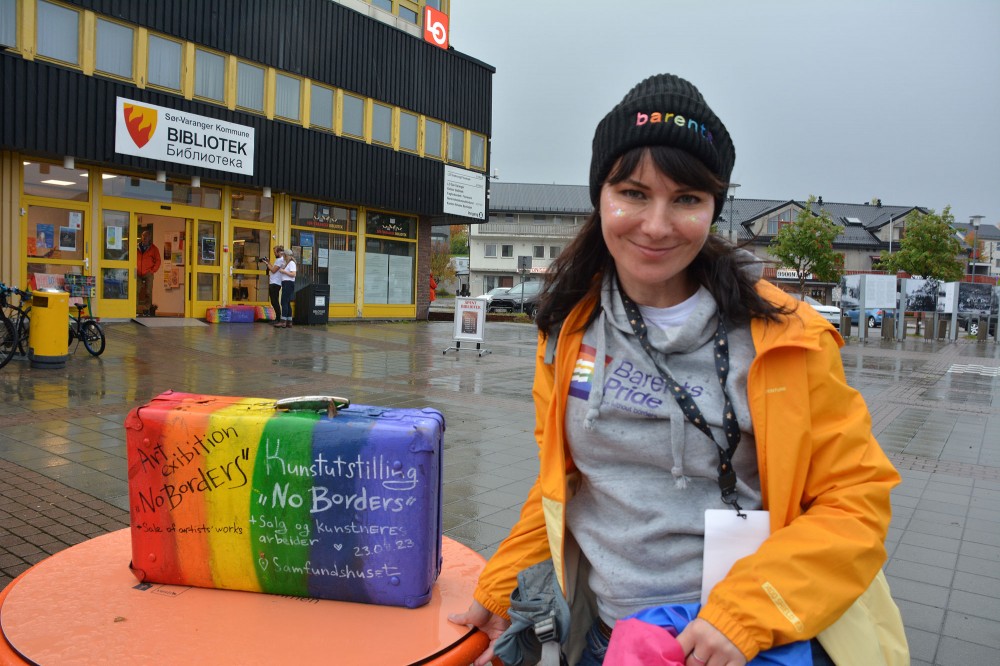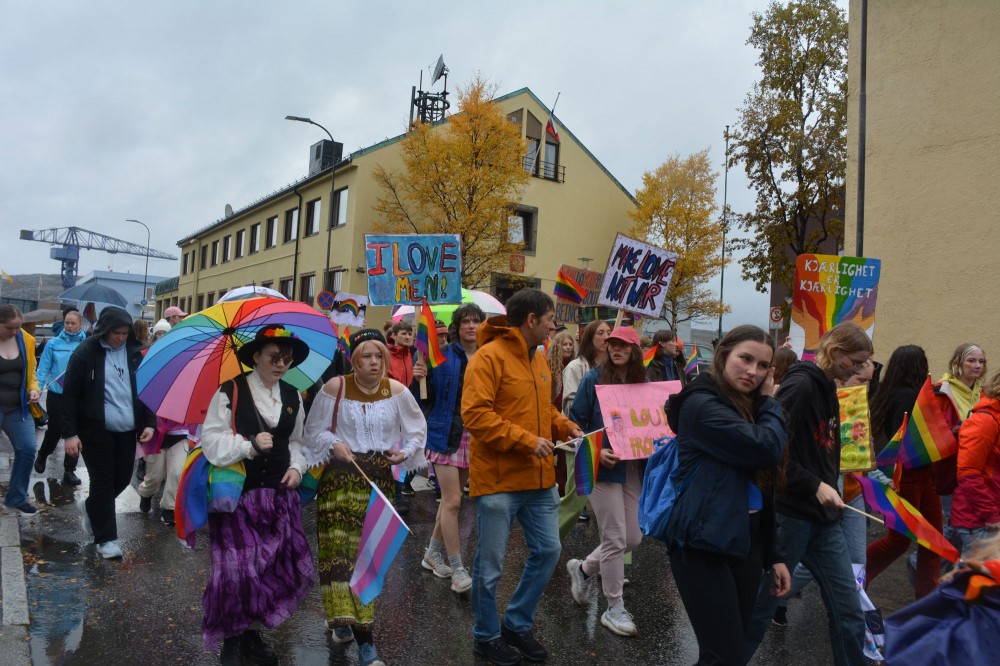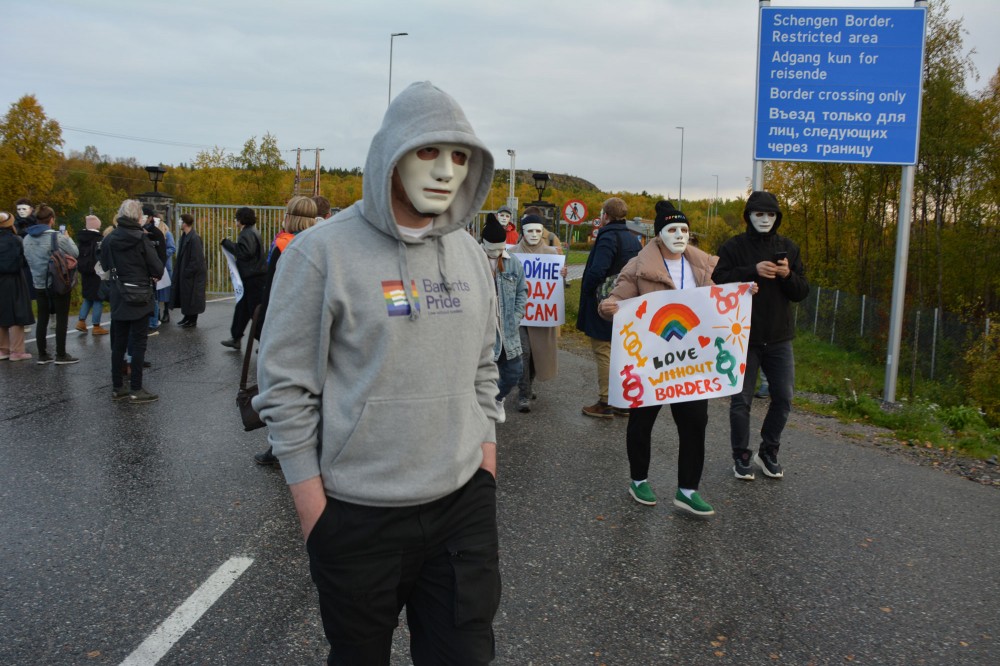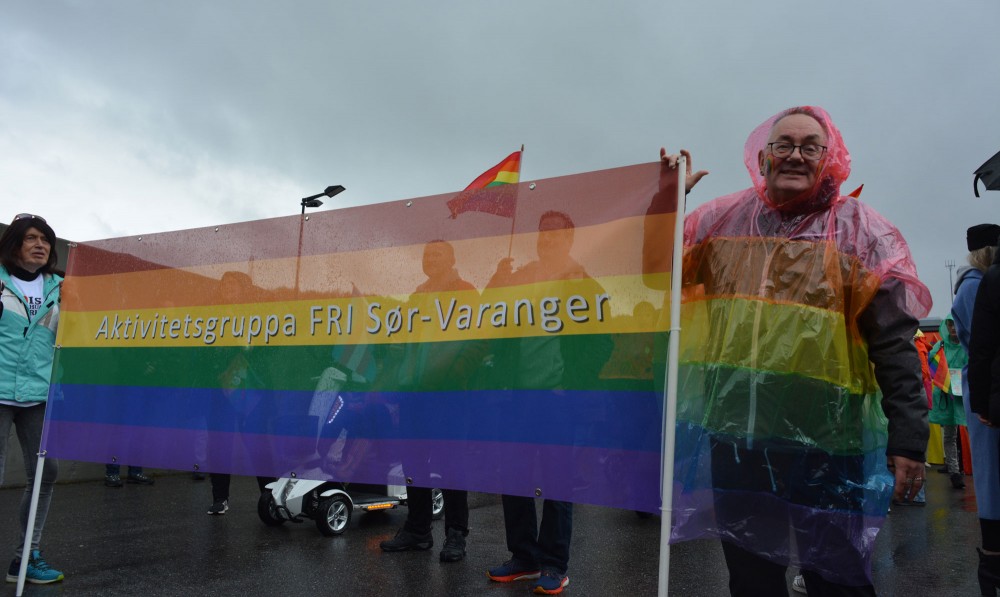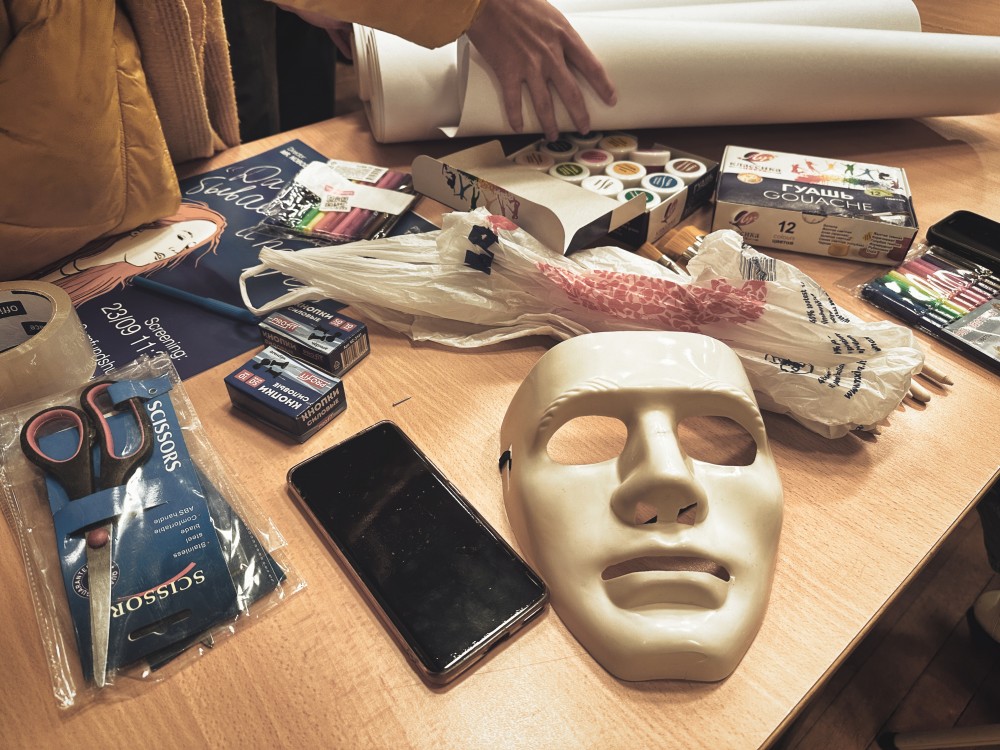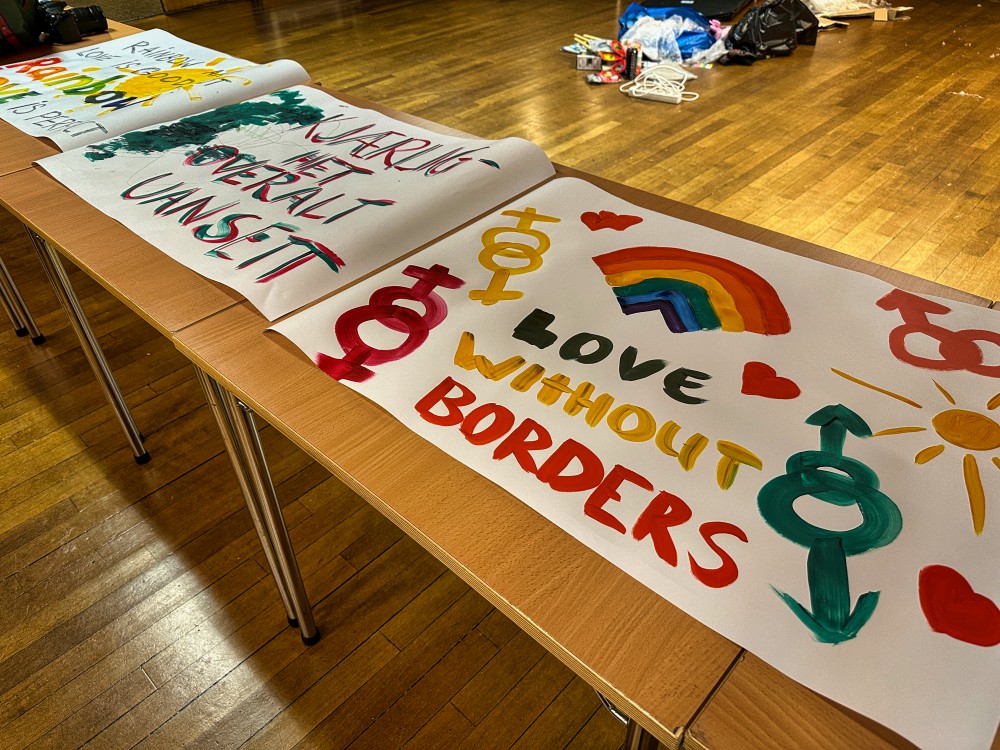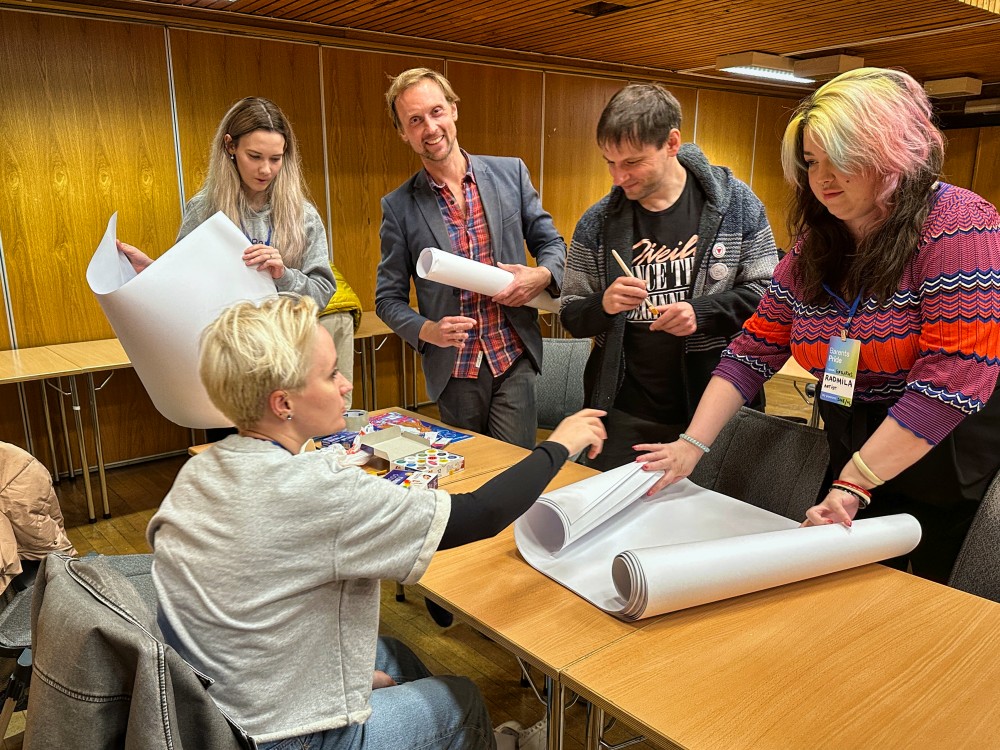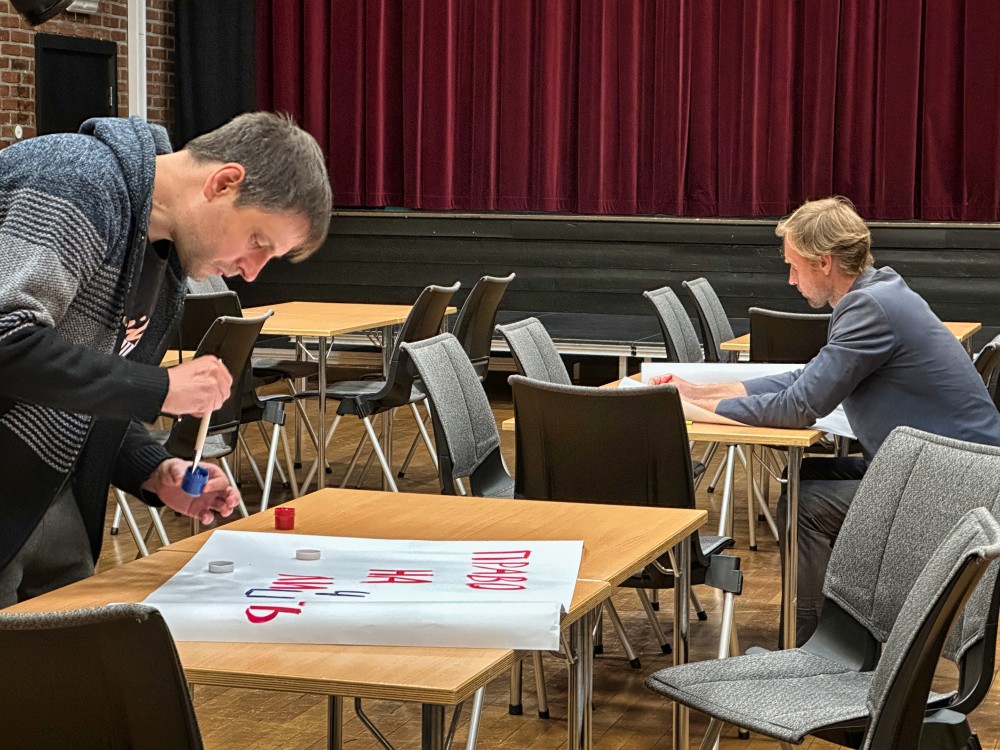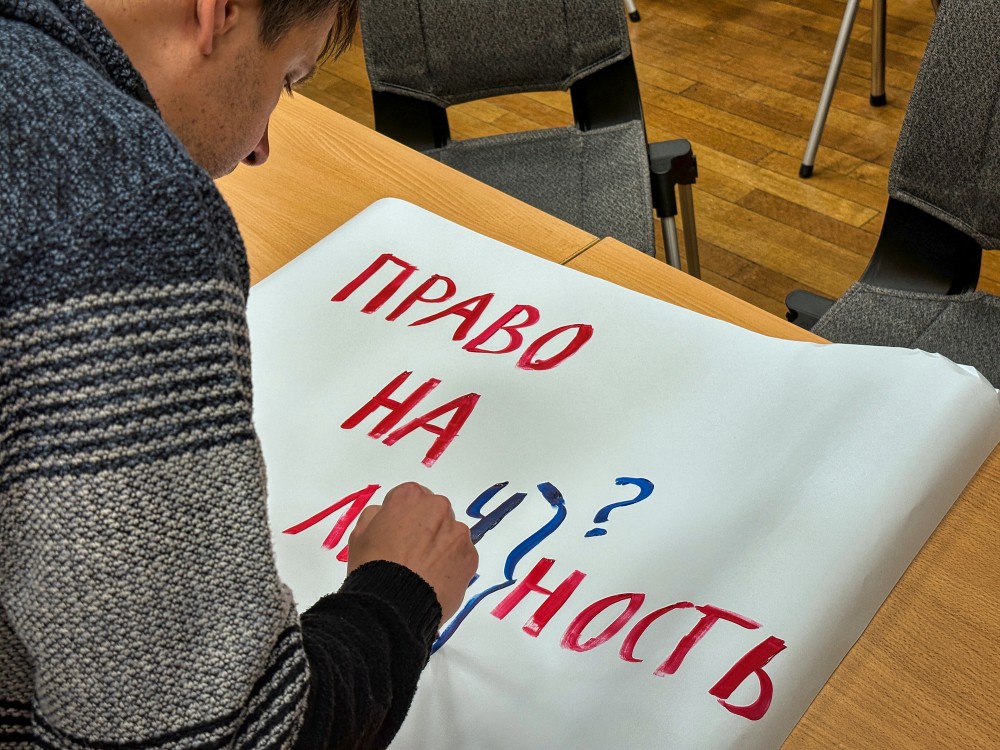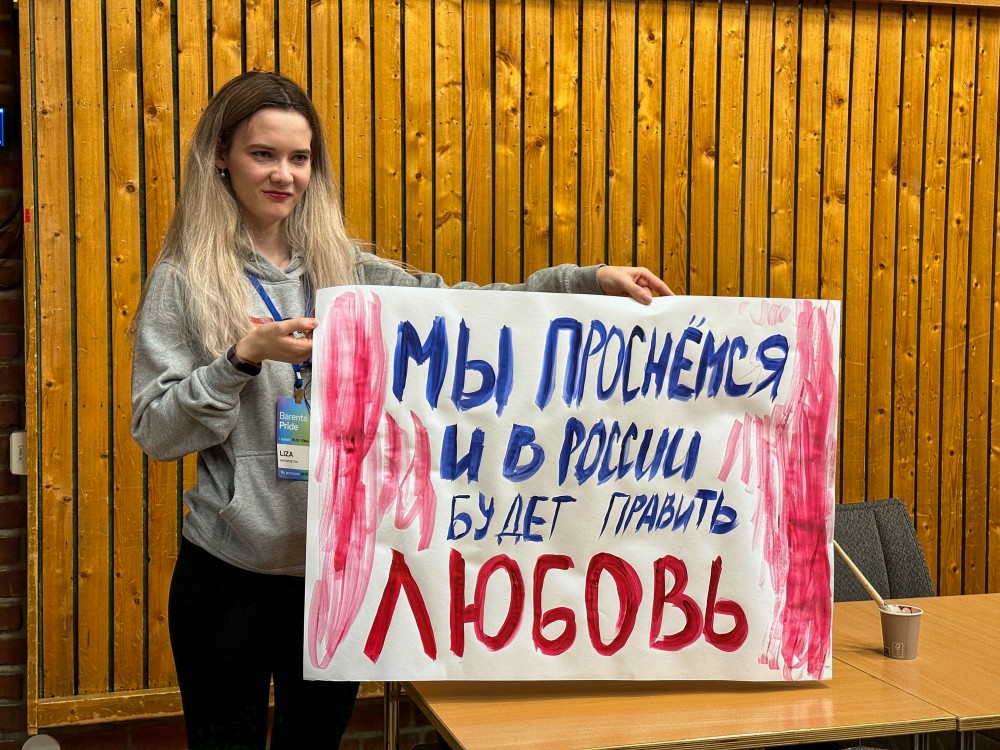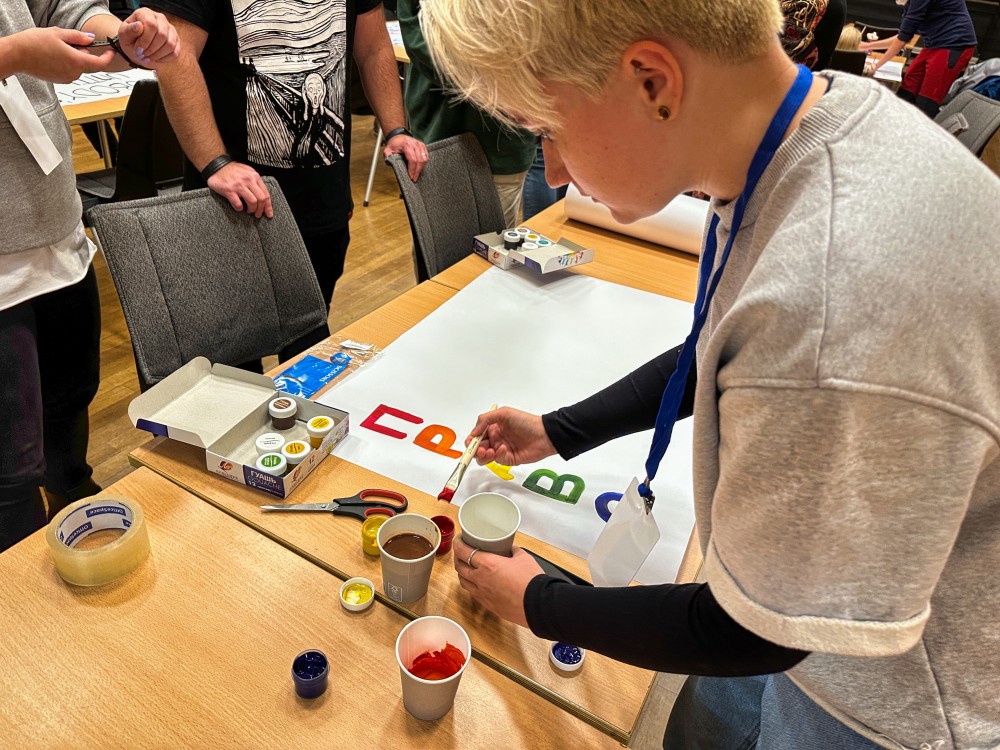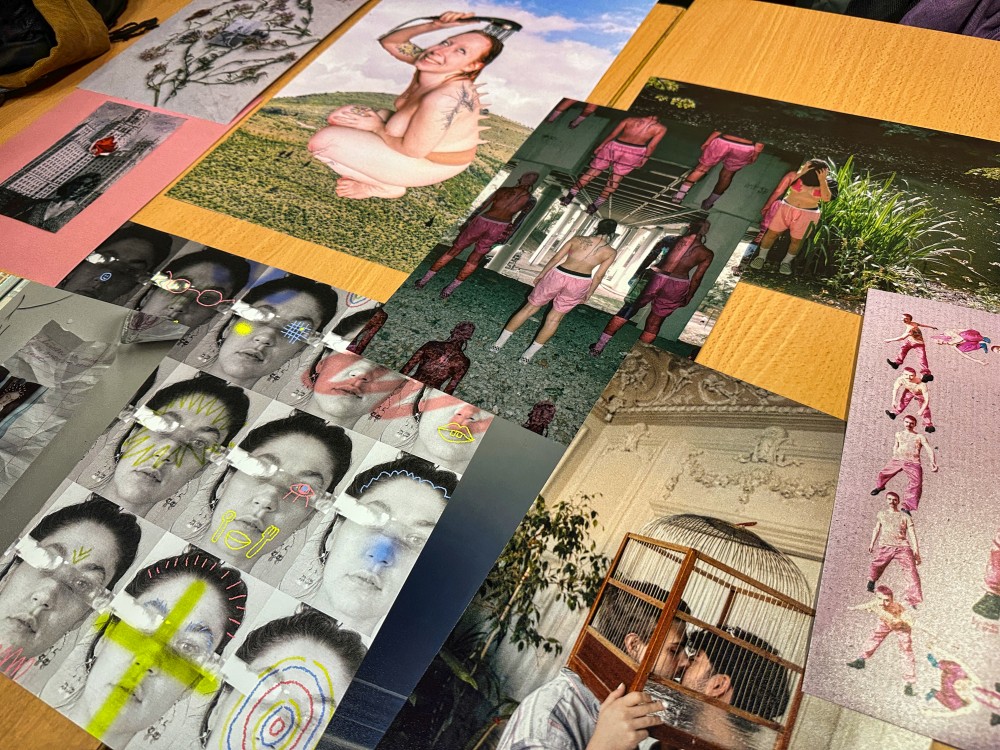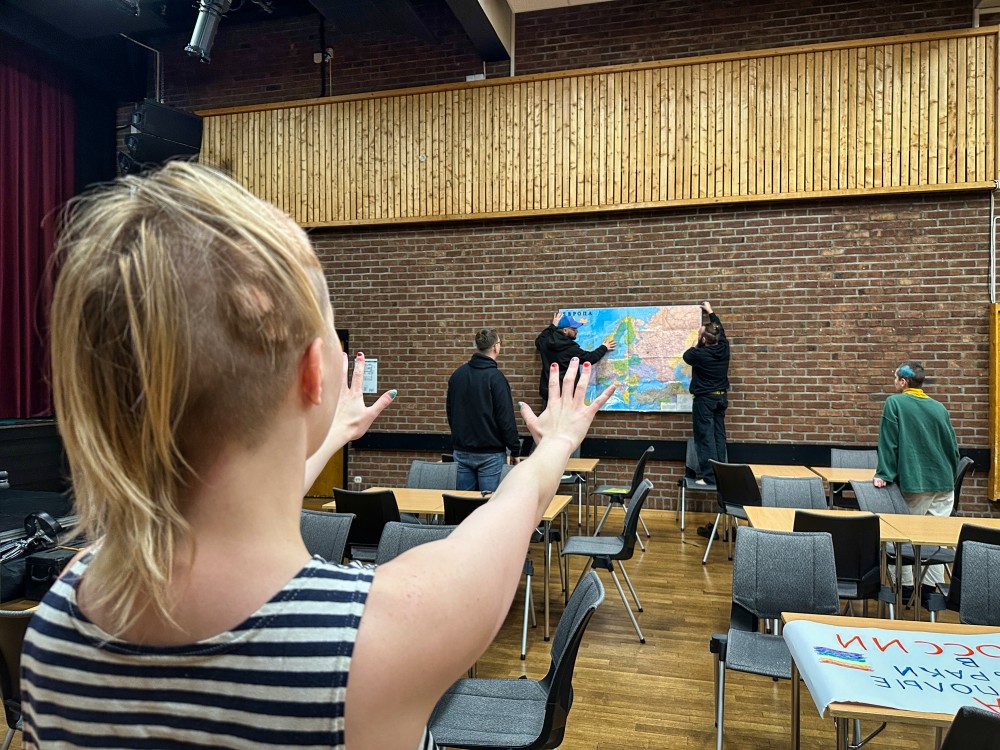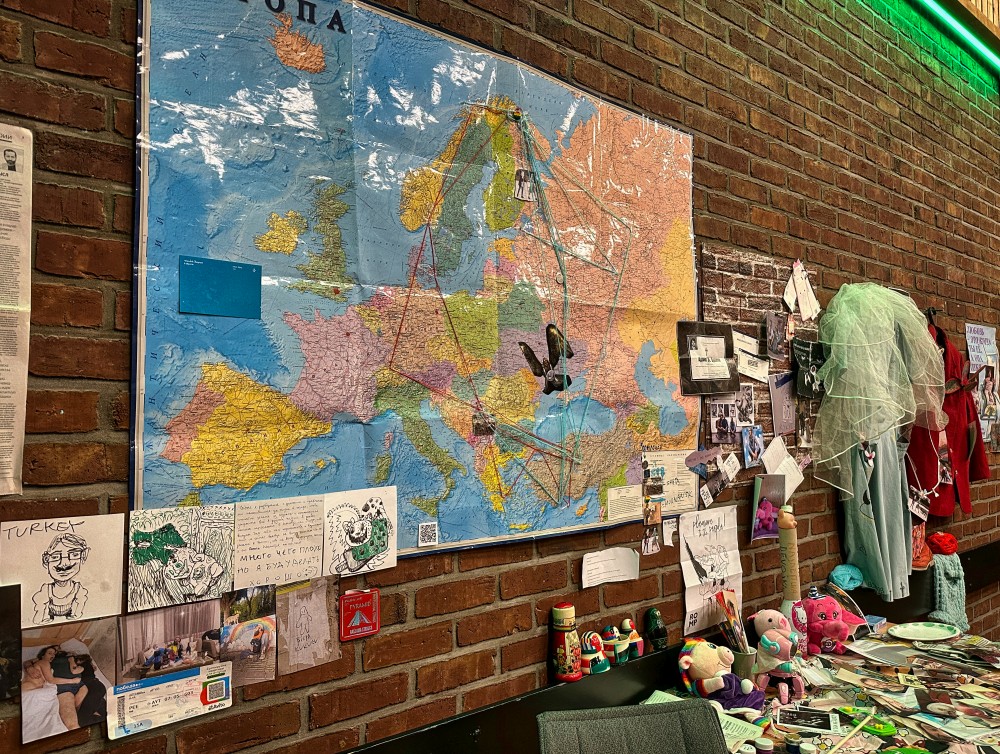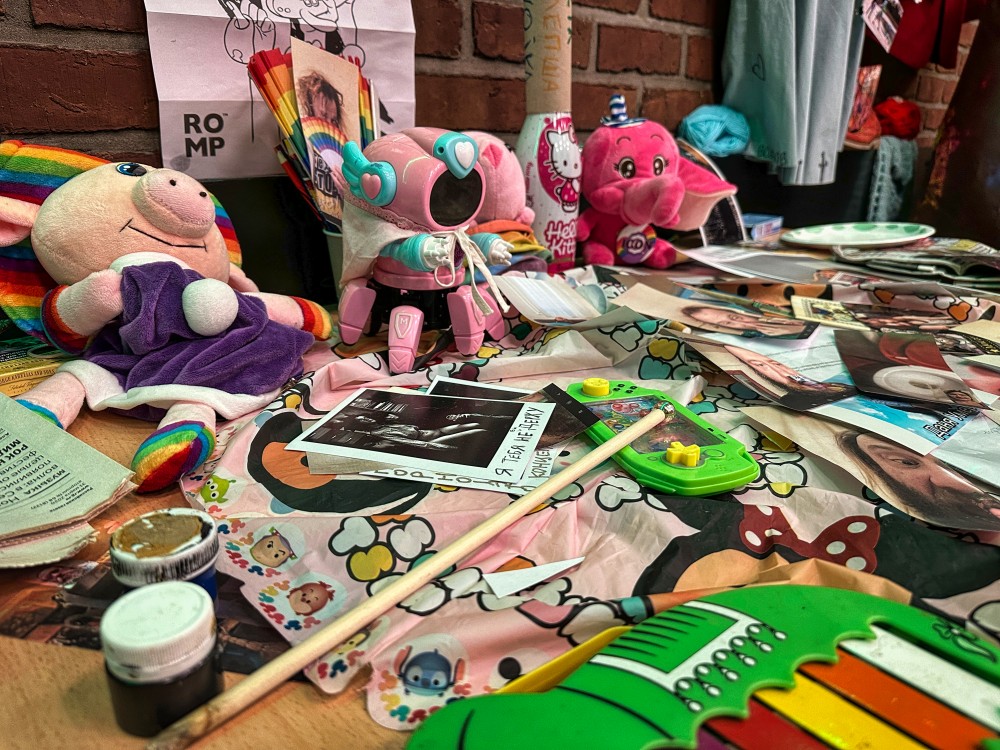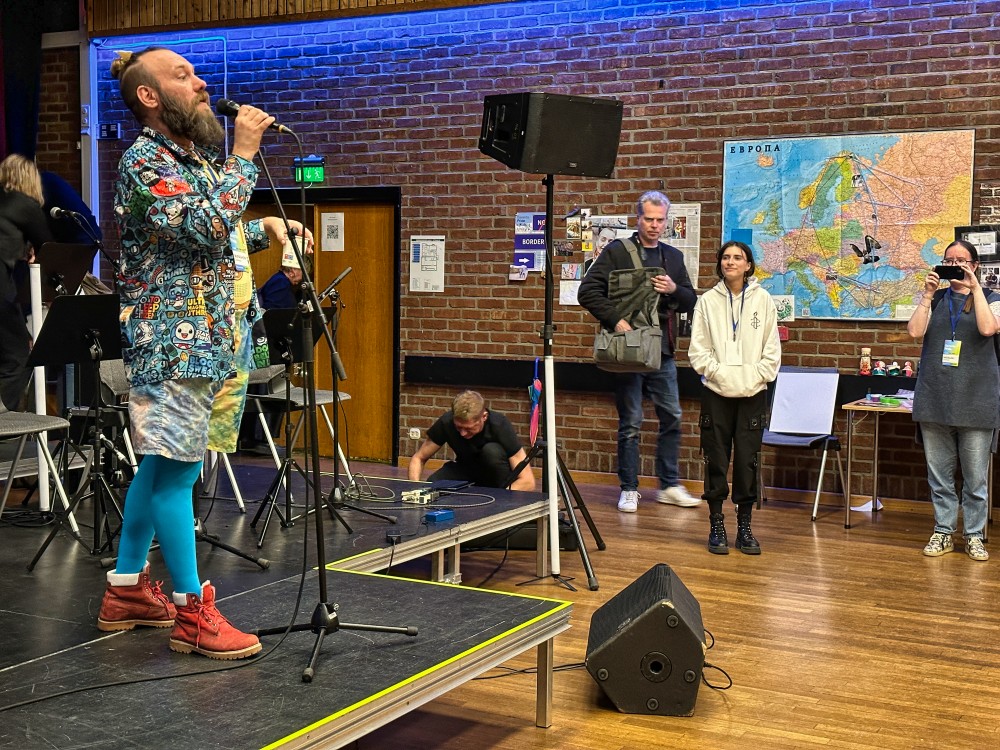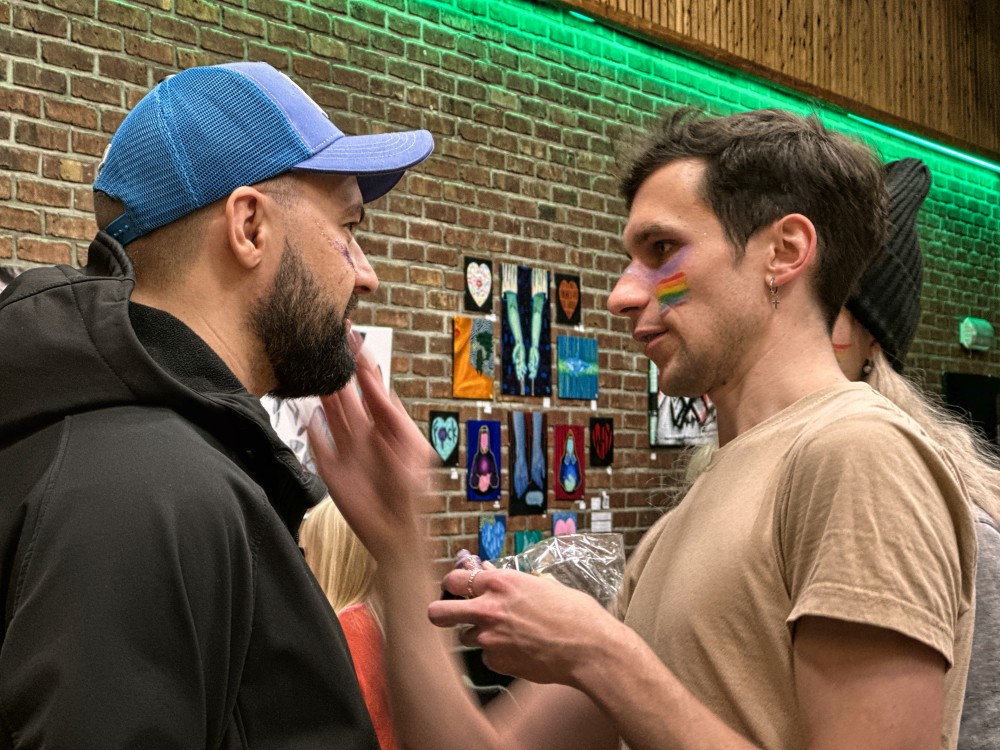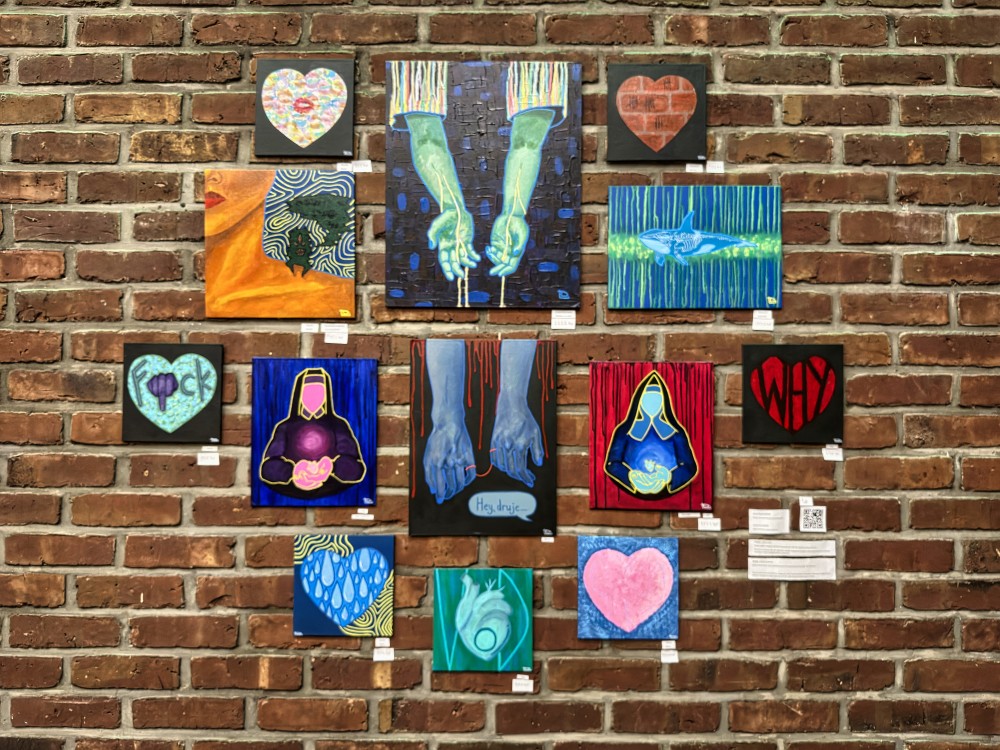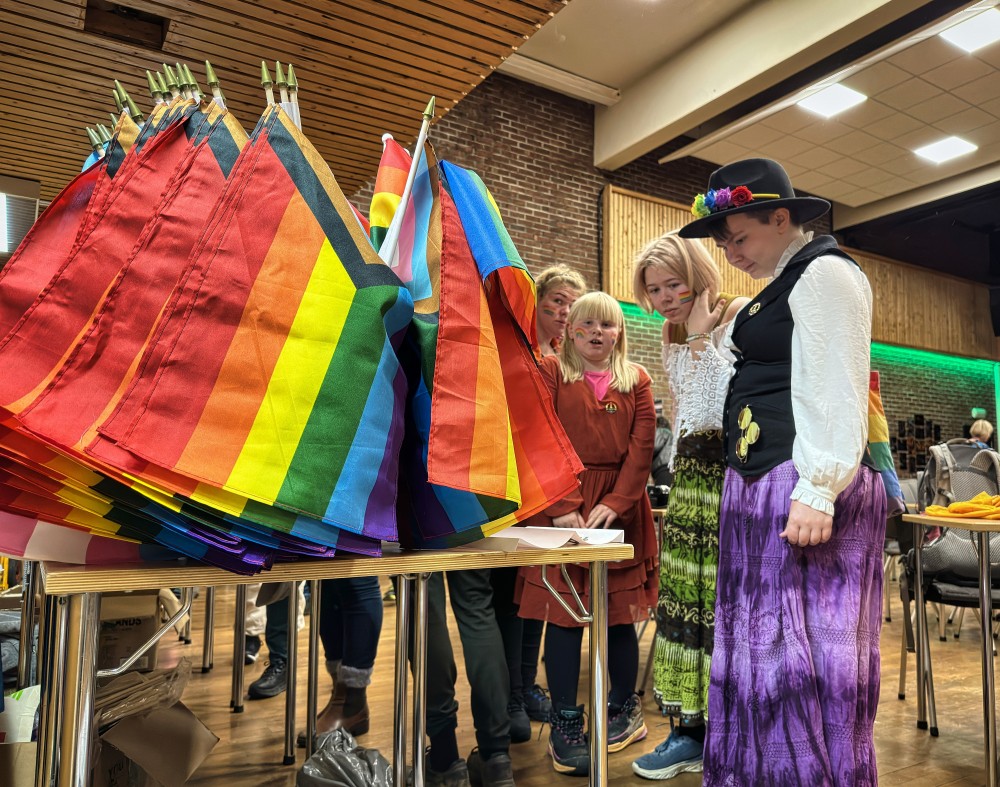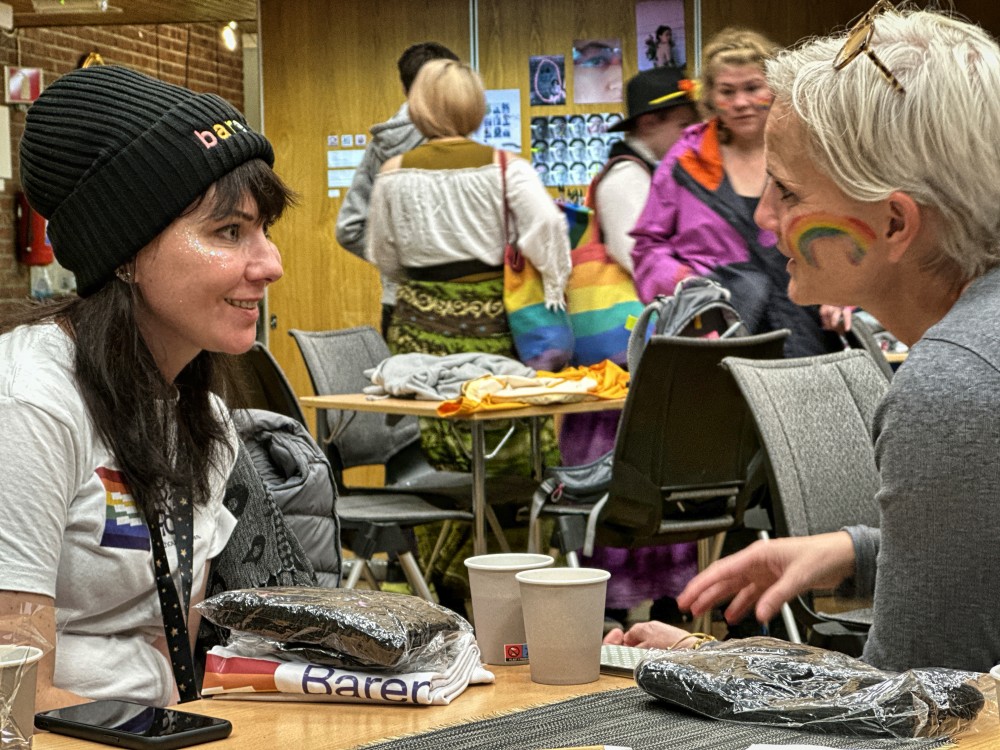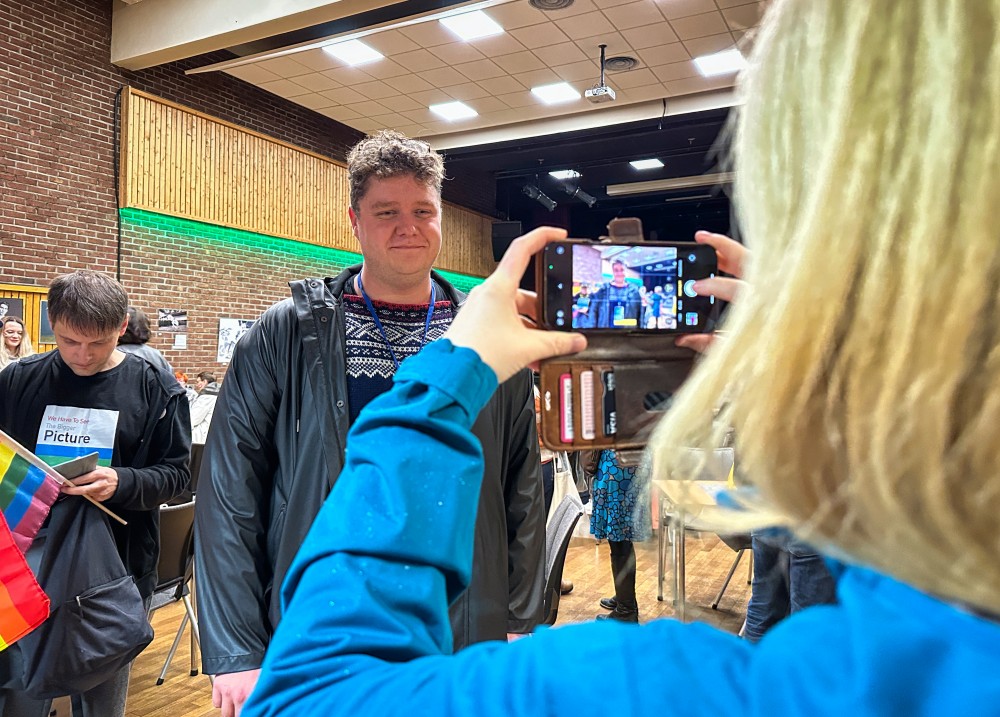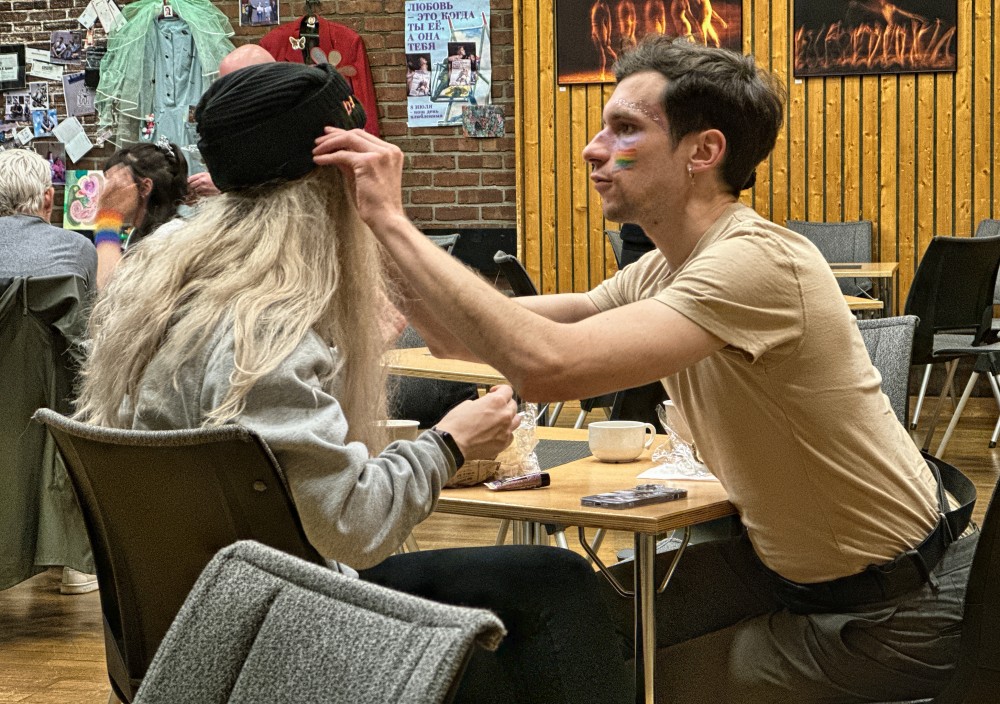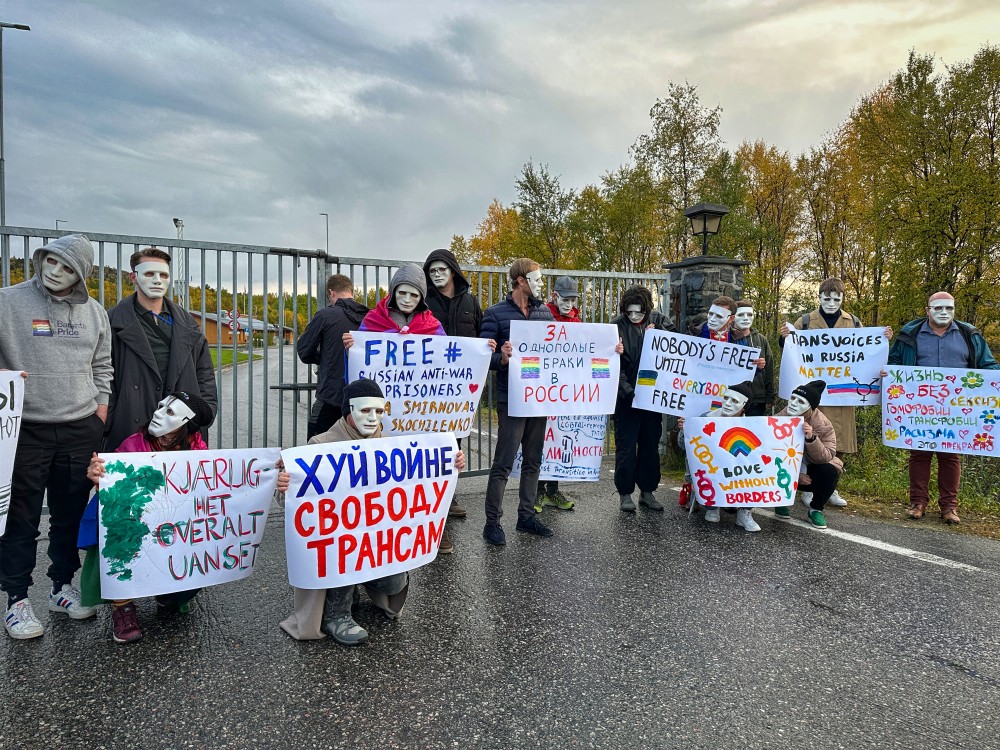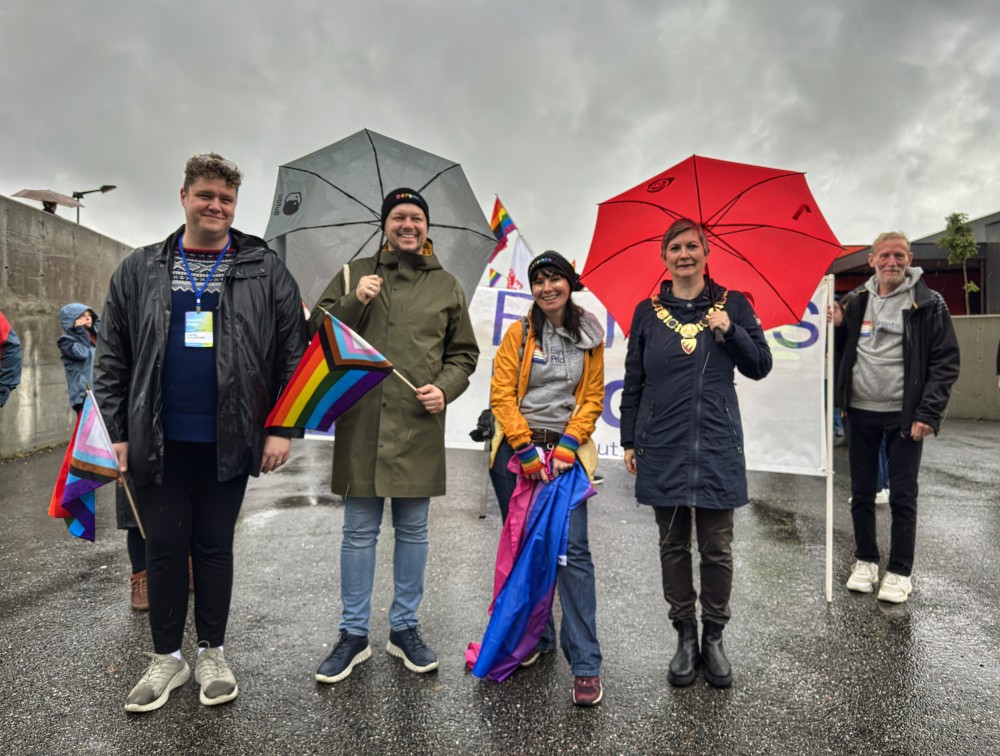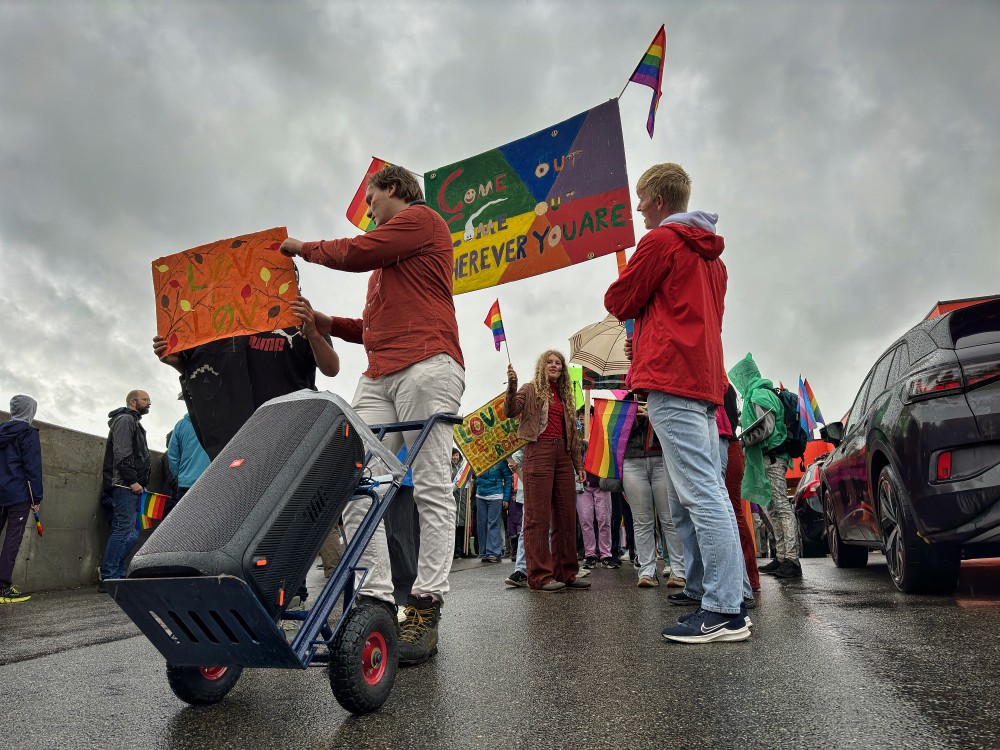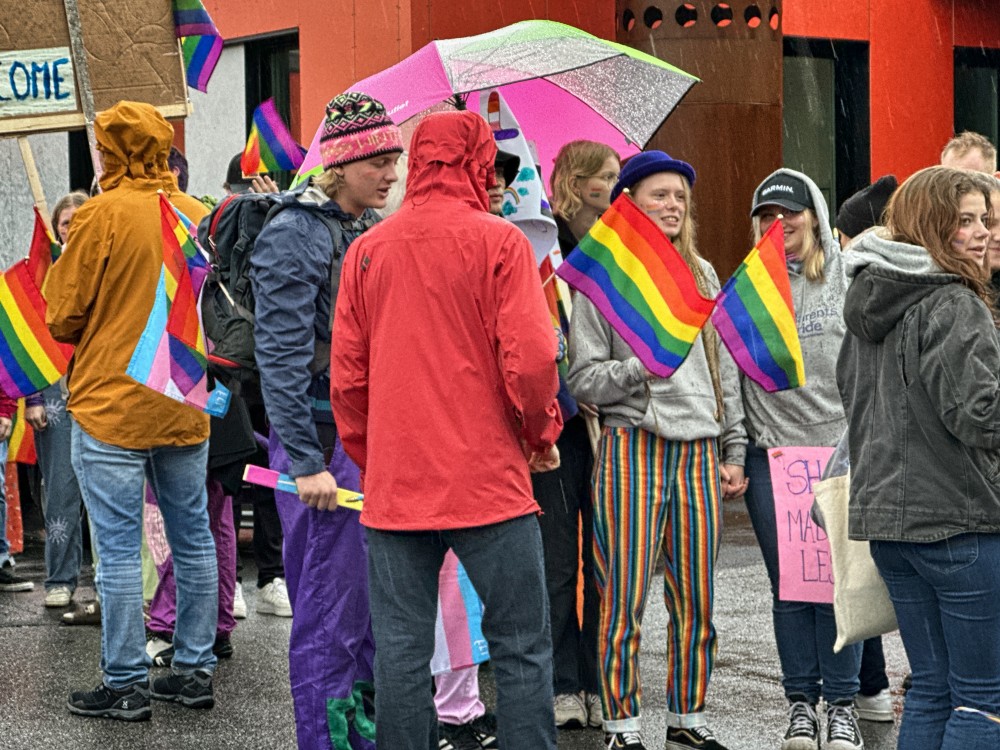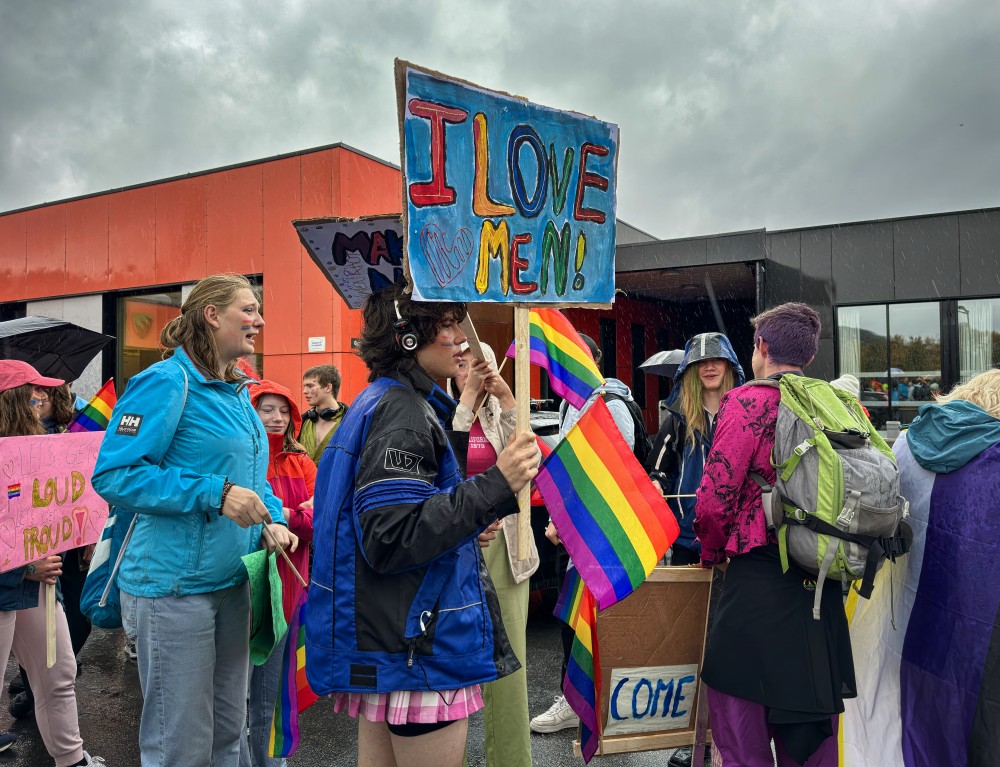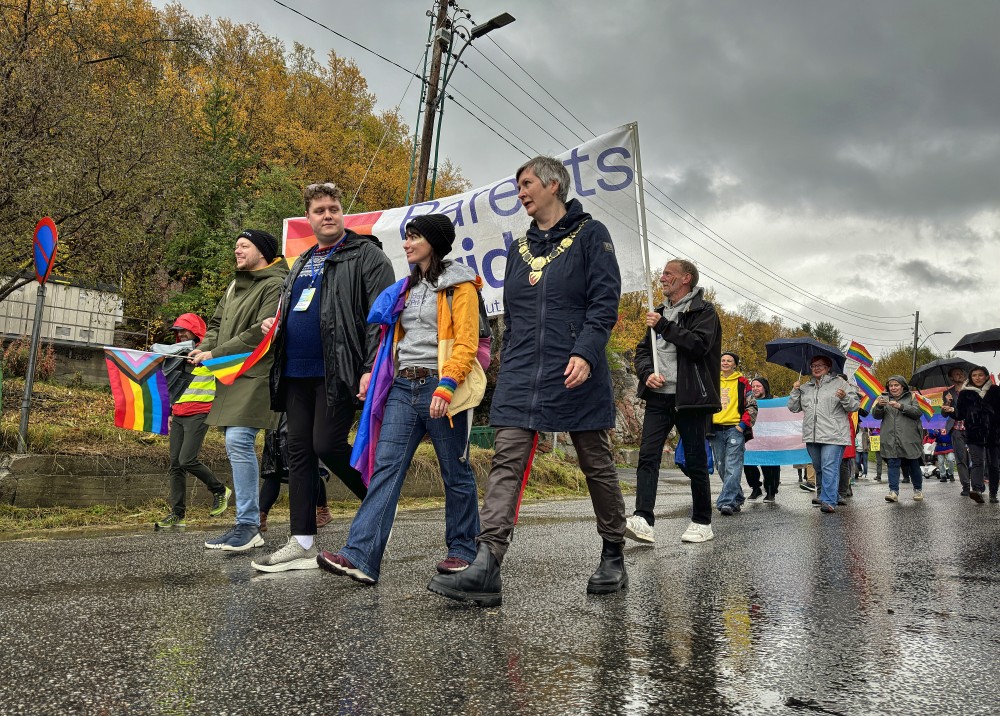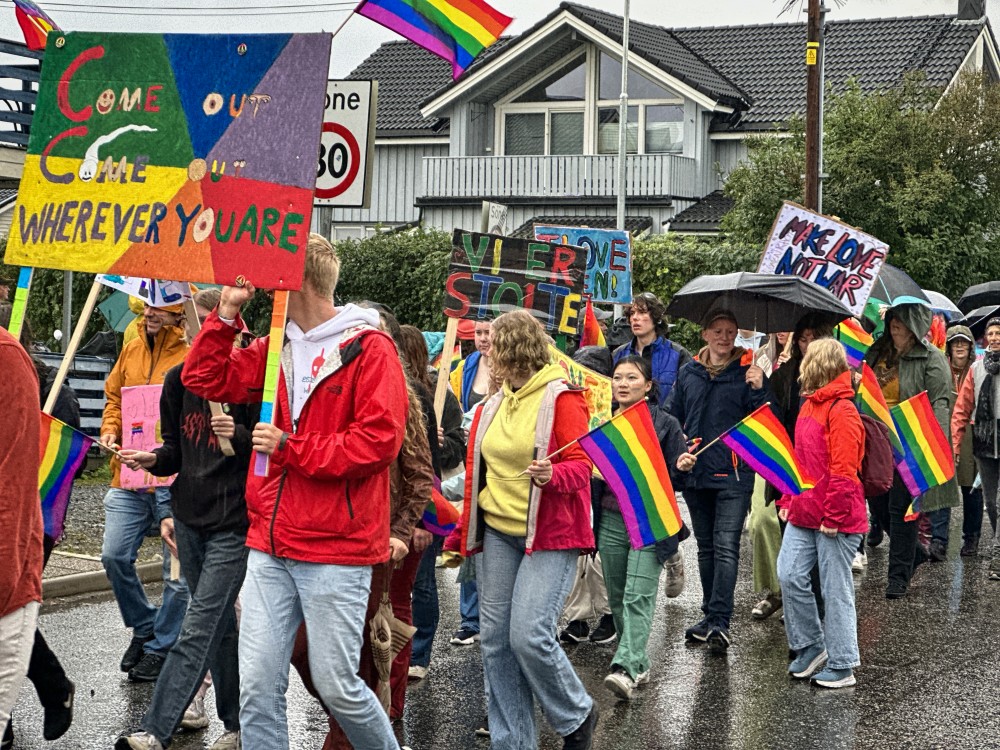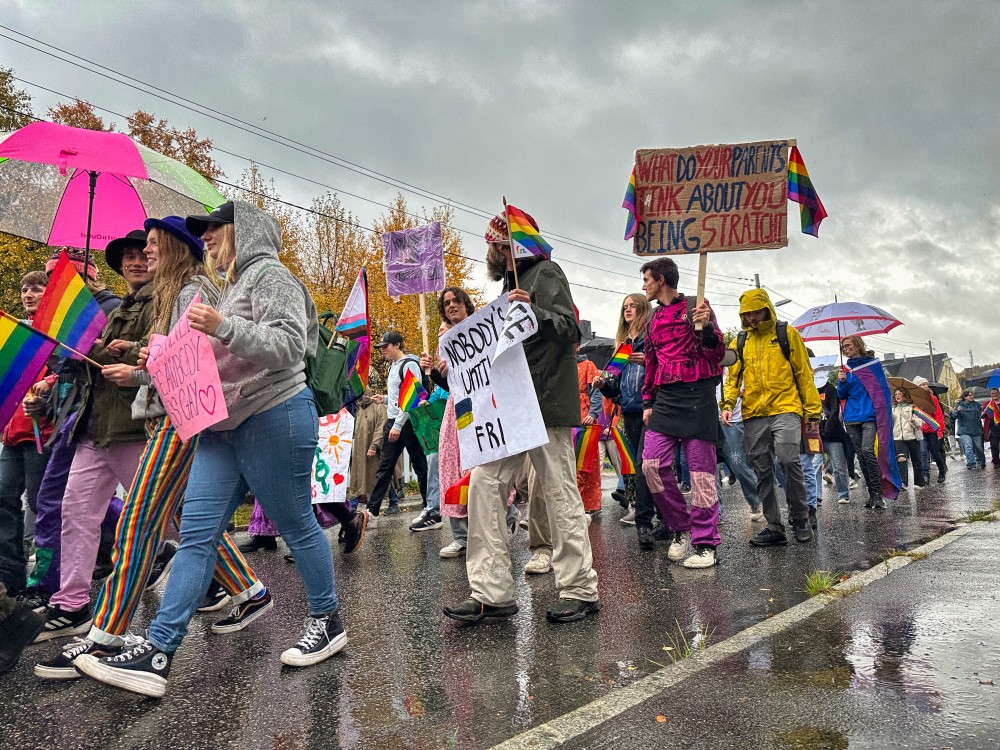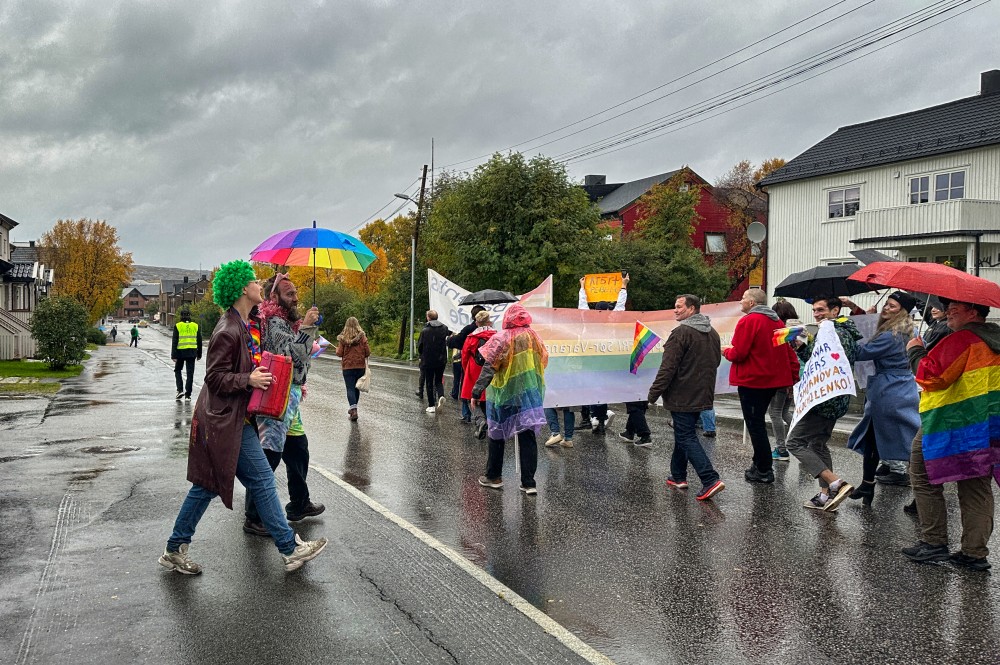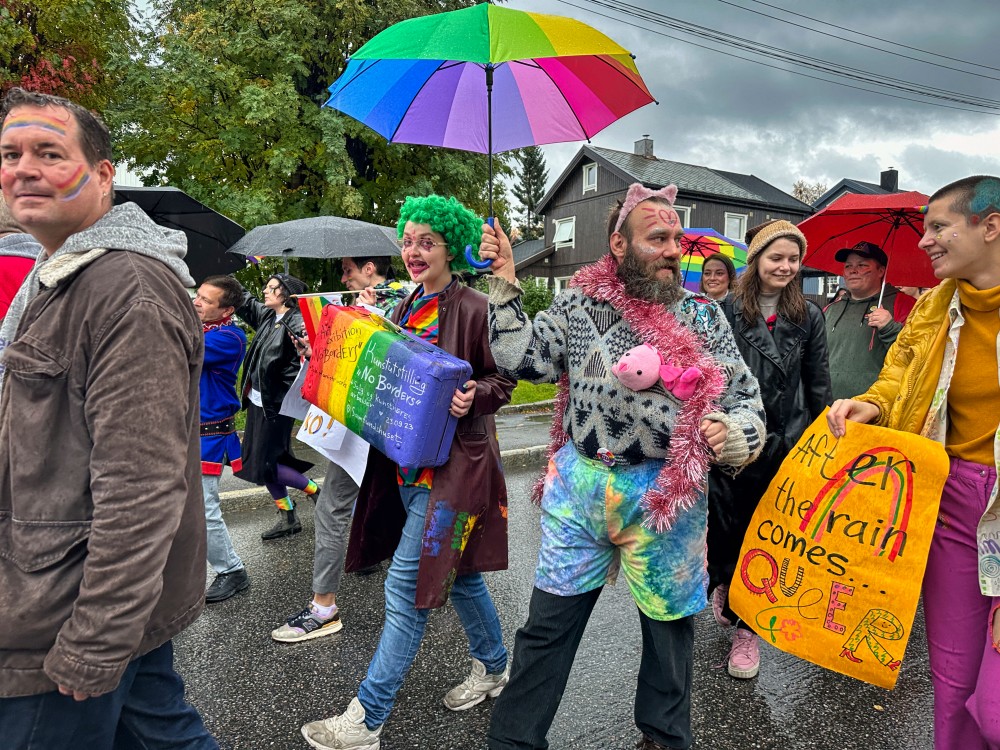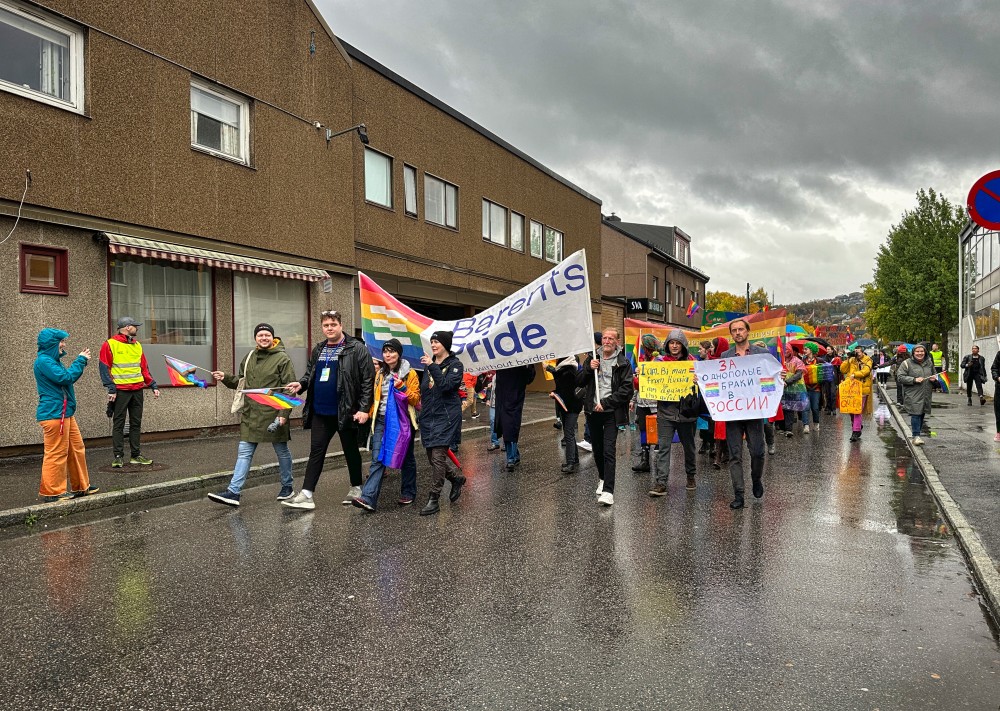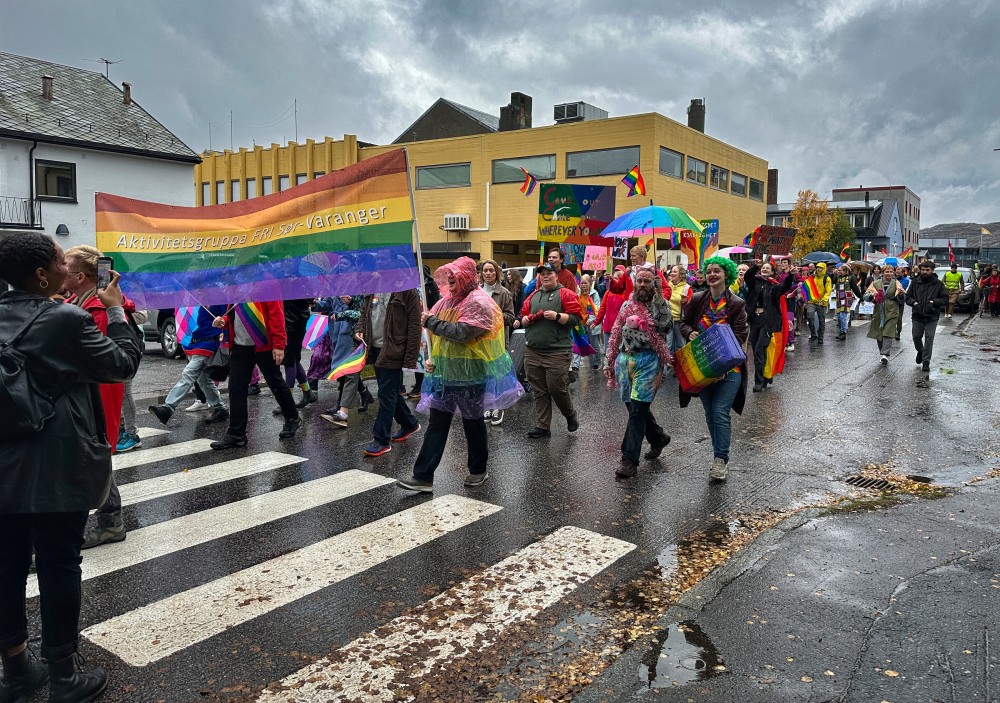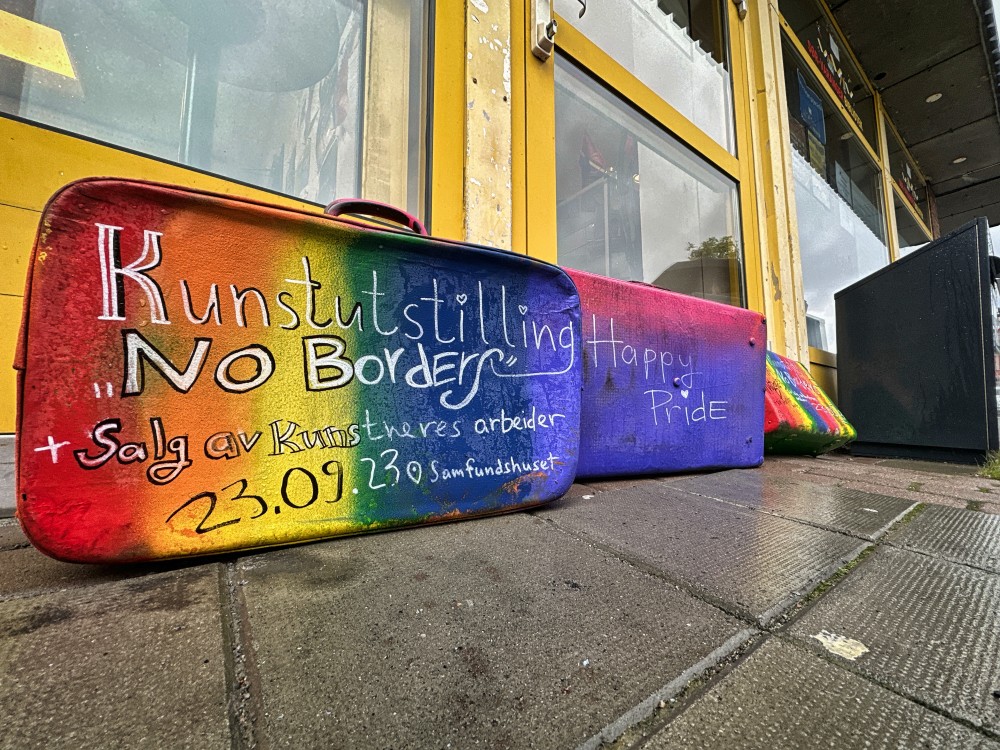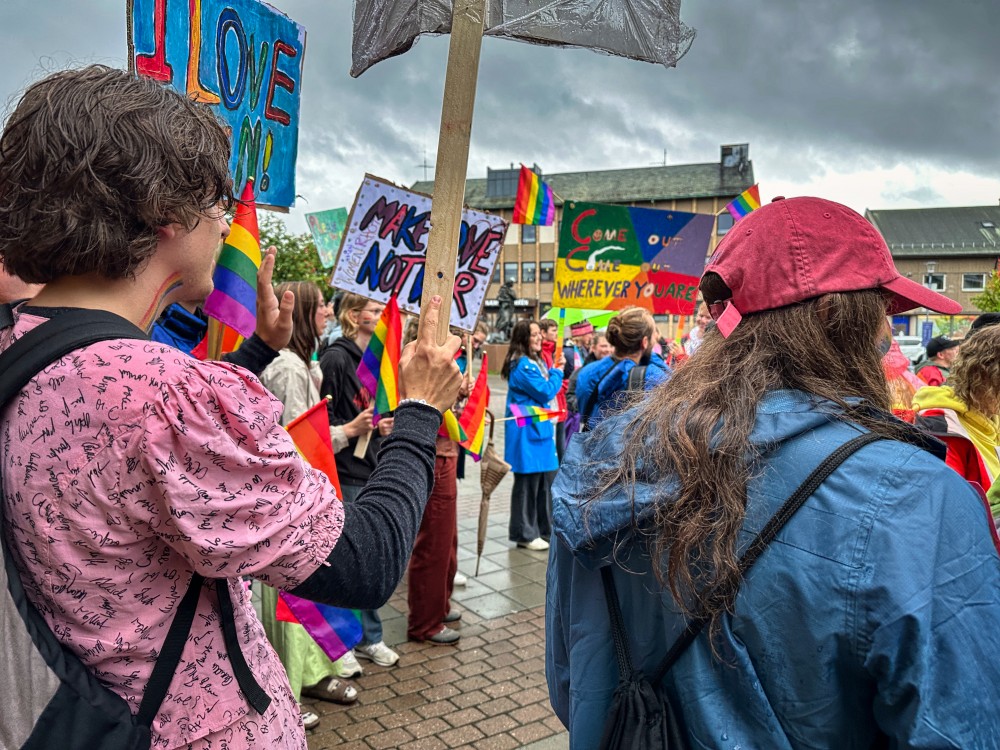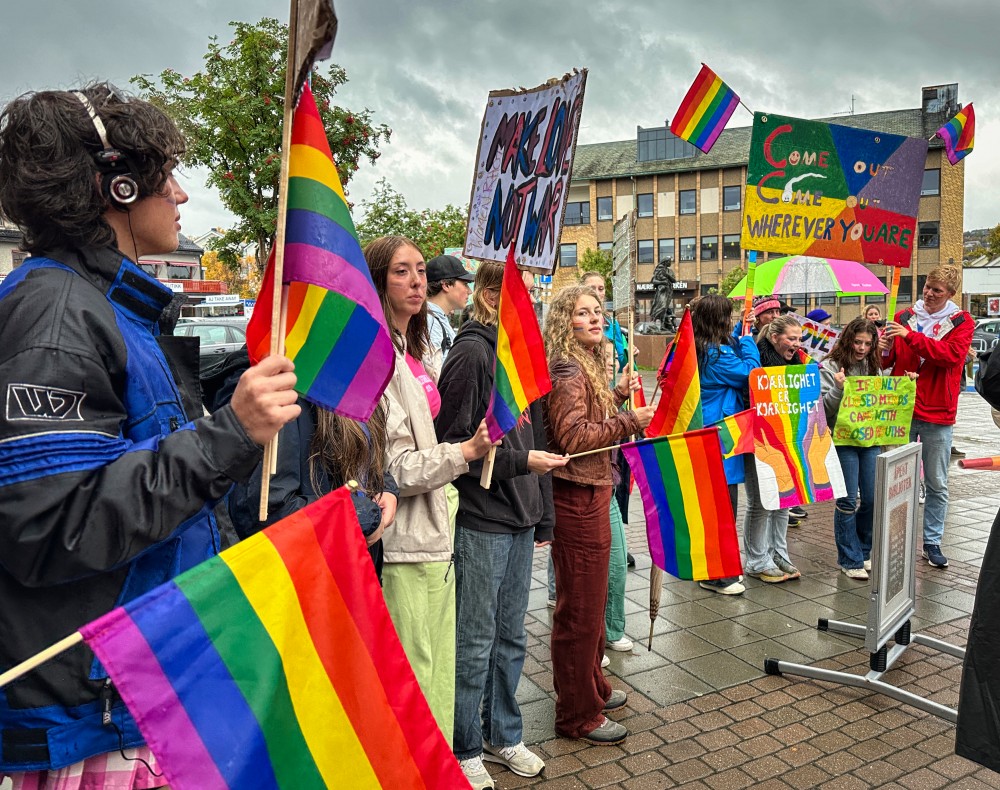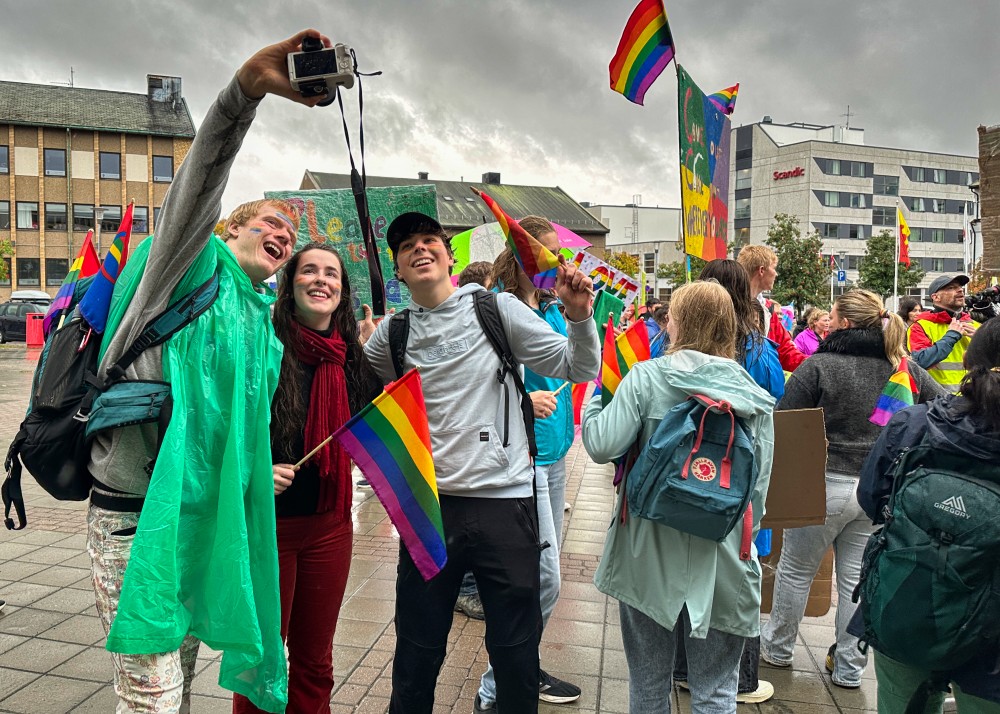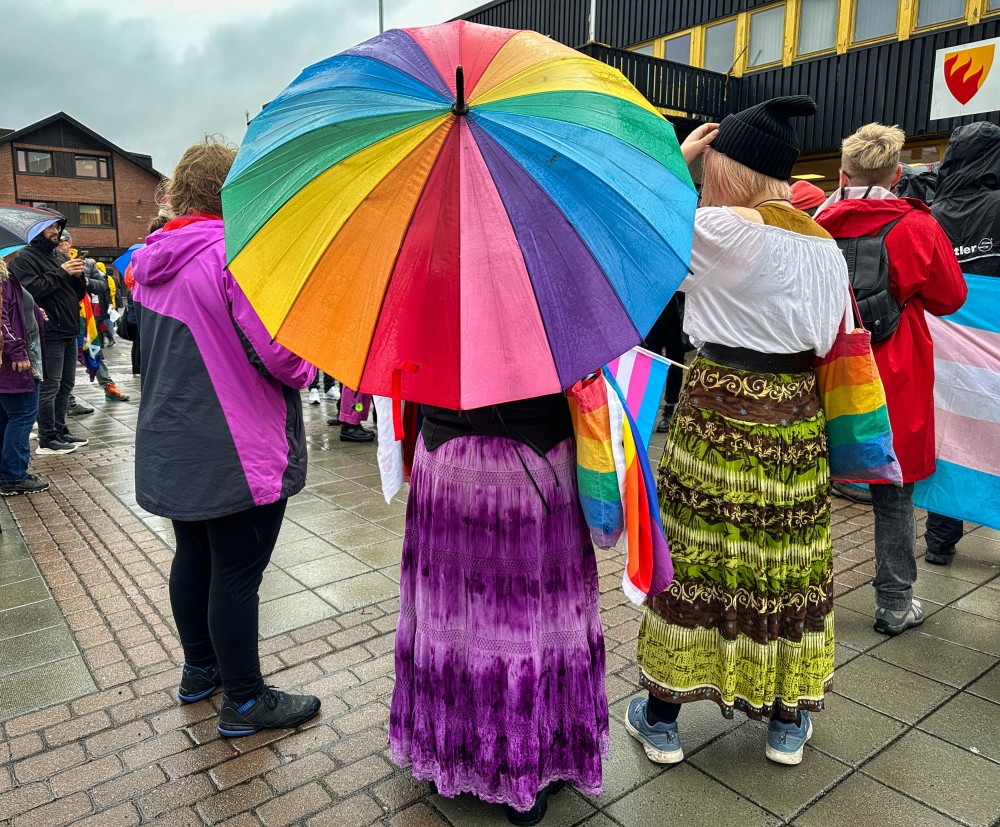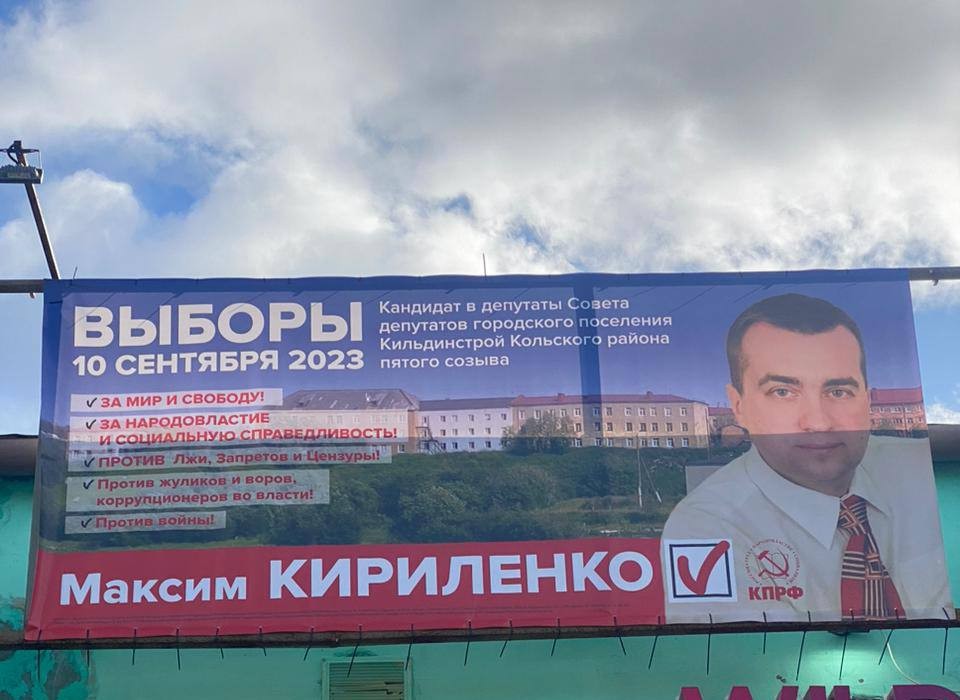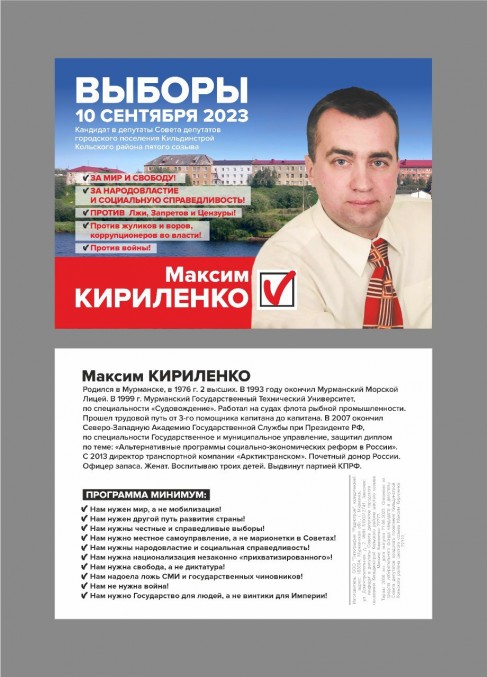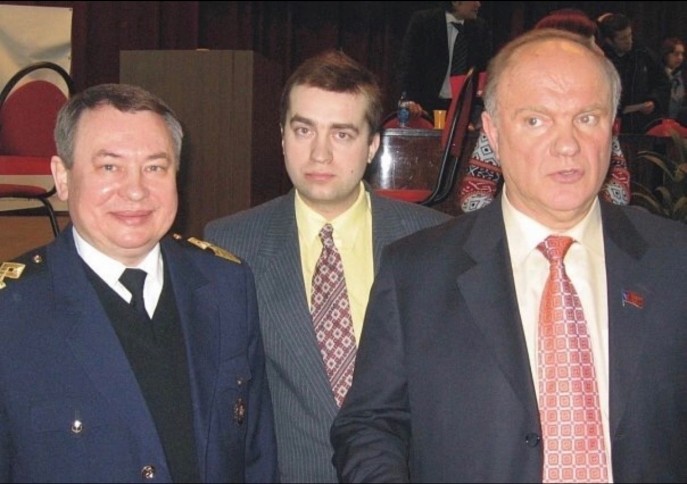Since the Russian invasion of Ukraine, the level of violence against women in Russia has increased, and the state has suddenly taken an interest in their reproductive rights again.
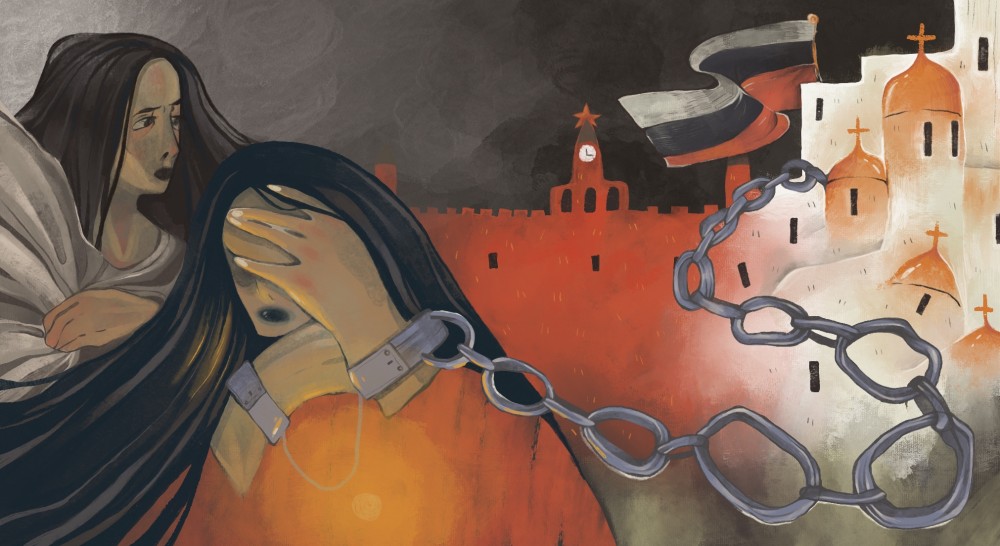
Illustration: Maya Stepanova
Olesia Krivtsova
BARENTS OBSERVER
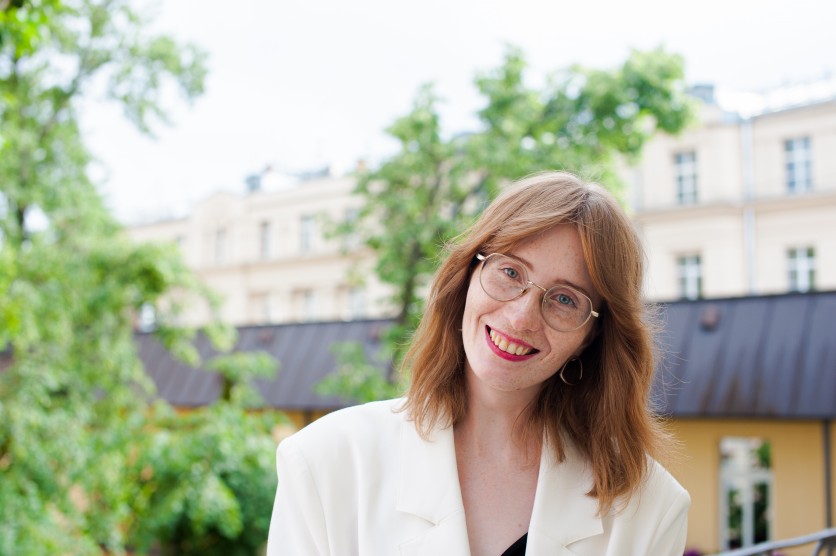
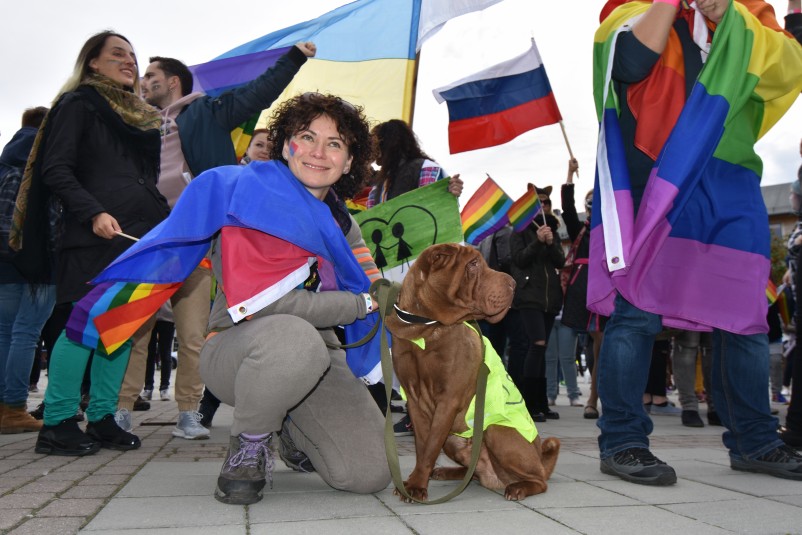
State and reproductive rights
Russia is suffering enormous losses of its troops, and the state believes that it’s women, whose rights and freedoms are relegated to the background because of the war, should make up for them,” – said Feminist Anti-war Resistance activist Natalya Baranova in an interview with The Barents Observer. She left Russia after the start of the war in Ukraine.
After February 2022, government officials began to pay more and more attention to Russia’s low demographics. The country indeed has demographic challenges. However, the methods that state officials propose as a solution to the problem are debatable.
“A belief has formed that a woman should get an education, then make a career, secure a foundation for herself, and only after that, already approaching, so to speak, such a difficult reproductive age, take care of childbearing,” Minister of Health Murashko said in the State Duma in July, calling this belief a “vicious practice”.
According to Murashko, the opposite should be explained to girls “from the school bench” (that you need to give birth to children before building a career). In addition, the Health Minister proposed “strict control” of abortion drugs be introduced.
The role of the Russian Orthodox Church
The church is also trying to lobby for an abortion ban in Russia. For example, at the beginning of 2023, the most prominent church figure, Patriarch Kirill, once again made a proposal to the State Duma to exclude abortions from the mandatory medical insurance:
“The time has come to legally remove abortion from the list of so-called services that allow medical merchants to profit from the sorrow.”
In January, the head of the patriarchal commission, Fyodor Lukyanov, once again proposed limiting abortions in the country and banning them even if there are medical indications that the child’s health is at risk.
“We believe that artificial termination of pregnancy at the request of a woman should be carried out with the voluntary consent of not only the woman herself, but also that of her husband,” he said. “It is necessary that it be carried out after mandatory pre-abortion psychological counseling, and this should be enshrined in law, as well as after an ultrasound examination and demonstration of the heartbeat of the human fetus.”
“Human life in Russia is not valued, this has to do with the war. And male officials openly say that the mission of a woman is to increase the birth rate of the country,” Natalia Baranova, an activist of Feminist Anti-War Resistance, said about the statements of officials and representatives of the Russian Orthodox Church.
What do women themselves think?
Olesya is a little over forty. She lives in the small military town of Severodvinsk. She is religious and regularly attends church on Sundays. But despite the fact that the Russian Orthodox Church opposes artificial termination of pregnancy, the woman is wary of the prospect of an abortion ban:
“I think that the ban on abortion in Russia will not end in anything good, we have been through this before,” Olesya told The Barents Observer over the phone. “Women will start mutilating themselves and doing illegal abortions.”
Organization “Women for Life” is active in several Russian cities. It was “Women for Life” who initiated the law on “propaganda of abortions” in Mordovia. According to them, abortions are promoted, among other things, by “derogatory statements” about pregnant women and the human fetus, “denial that the embryo and fetus are a living person”, and “negative” arguments about possible social and economic problems for the child and mother who did not have an abortion.
Mari Davtyan, a lawyer and human rights activist who has been providing legal assistance to victims of domestic violence in Russia for many years, has commented on the initiative on her Facebook page.
“First of all, it is still completely unclear what the main law and the amendments to regional legislation on administrative offenses actually read. Only the draft of the law is posted on the website of the State Assembly of the Republic of Mordovia. But in any case, this law, whatever it reads, is of course disgusting both in form and in content. There should not be such a law either at the federal or regional level. Such initiatives are a restriction of the right of women to information pertaining to their health, this is a restriction of the constitutional right to freedom of speech.”
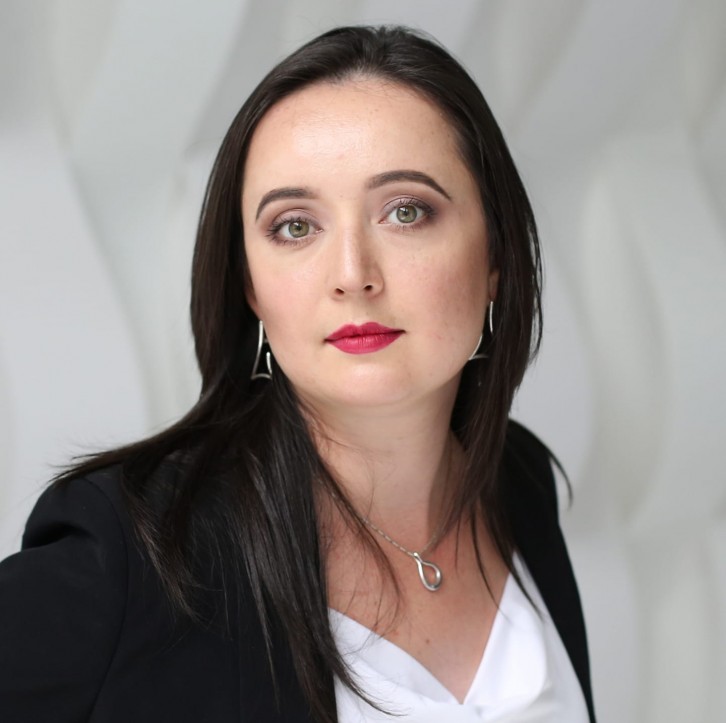
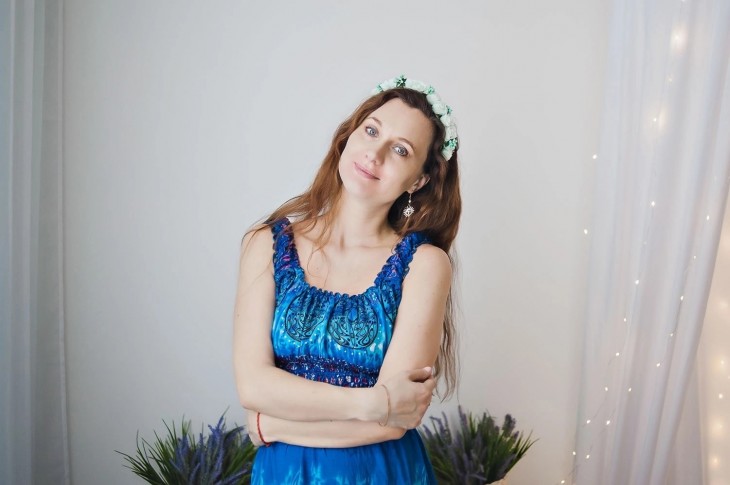
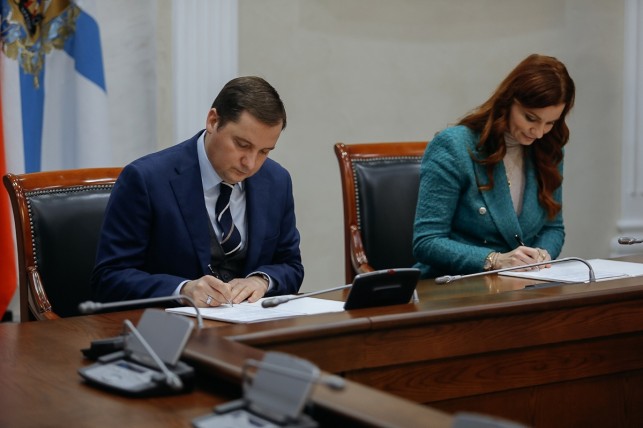
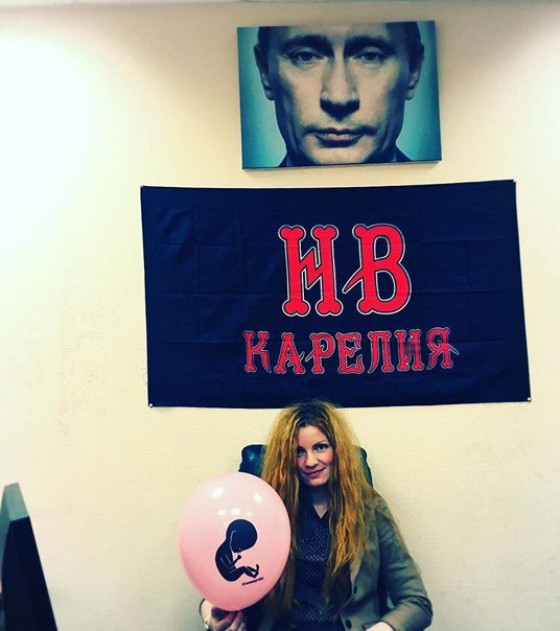
September 13, 2023
“Because of the war, the level of domestic violence has increased. As a rule, people returning from a war zone are very traumatized physically and psychologically. All of this translates into an increase in crimes against women and children in the family,” Lilia Vezhevatova, coordinator of Feminist Anti-War Resistance, says to The Barents Observer.
Since the beginning of the war in Ukraine, there have been many cases of sexualized and physical violence by military personnel returning from Ukraine.
On August 19, in Murmansk, a man who had recently returned from the war in Ukraine hit a girl in the face. Before that, he walked around a local bar and filmed people, asking them if they “support the special military operation.” When other girls stood up for the beaten woman, the military man said that he would “put them to use”. After the conflict, he filed a complaint with the police on the woman he hit.
In April of this year, a 44-year-old senior sergeant stabbed his wife to death when he was on a short leave from the war in the Nizhny Novgorod region. The military man disposed of his wife while his sons were in the next room. Now he is under arrest, as reported by the press service of the Novosibirsk Court.
“Because of the war, the level of domestic violence has increased. As a rule, people returning from a war zone are very traumatized physically and psychologically. All of this translates into an increase in crimes against women and children in the family,” Lilia Vezhevatova, coordinator of Feminist Anti-War Resistance, says to The Barents Observer.
Since the beginning of the war in Ukraine, there have been many cases of sexualized and physical violence by military personnel returning from Ukraine.
On August 19, in Murmansk, a man who had recently returned from the war in Ukraine hit a girl in the face. Before that, he walked around a local bar and filmed people, asking them if they “support the special military operation.” When other girls stood up for the beaten woman, the military man said that he would “put them to use”. After the conflict, he filed a complaint with the police on the woman he hit.
In April of this year, a 44-year-old senior sergeant stabbed his wife to death when he was on a short leave from the war in the Nizhny Novgorod region. The military man disposed of his wife while his sons were in the next room. Now he is under arrest, as reported by the press service of the Novosibirsk Court.
In August of this year, 25-year-old Tatyana from Ulan-Ude told reporters that she had been threatened with violence by a man who returned from the war:
“… a man in camouflage approached us, he had some kind of order or badge pinned to his chest, and a huge scar on his face. He was clearly drunk. He wanted to become friends with me, and when I refused, he was terribly indignant. He shouted: “We are writhing in the trenches, shedding blood for you, and here you are still making someone out of yourself!” And all this with obscenities, eyes filled with blood. I was frightened, pulled my friend by the hand, wanted to leave as soon as possible. And he blocked my way, shouting to his friends: “Look, what a sleazebag. I was in the trenches, but she won’t give it to me! Guys, come over here.”
“Women were not protected even before the war, now they are in the most vulnerable position and at risk – violence in society will grow and is already growing. Everyone who returns from the war returns with a crippled psyche, with PTSD. There are risks of facing aggression everywhere – both at home and on the streets of the city,” says Natalya Baranova, an activist of Feminist Anti-War Resistance, in an interview with The Barents Observer. In May 2022, the Russian Ministry of Justice recognized Natalia as a “foreign agent”
“… a man in camouflage approached us, he had some kind of order or badge pinned to his chest, and a huge scar on his face. He was clearly drunk. He wanted to become friends with me, and when I refused, he was terribly indignant. He shouted: “We are writhing in the trenches, shedding blood for you, and here you are still making someone out of yourself!” And all this with obscenities, eyes filled with blood. I was frightened, pulled my friend by the hand, wanted to leave as soon as possible. And he blocked my way, shouting to his friends: “Look, what a sleazebag. I was in the trenches, but she won’t give it to me! Guys, come over here.”
“Women were not protected even before the war, now they are in the most vulnerable position and at risk – violence in society will grow and is already growing. Everyone who returns from the war returns with a crippled psyche, with PTSD. There are risks of facing aggression everywhere – both at home and on the streets of the city,” says Natalya Baranova, an activist of Feminist Anti-War Resistance, in an interview with The Barents Observer. In May 2022, the Russian Ministry of Justice recognized Natalia as a “foreign agent”

Natalia Baranova. Photo: Natalia Baranova
Another incident occurred in the Sverdlovsk region on August 3, 2023. Two soldiers who returned from the war threatened an 18-year-old girl with murder and tried to drown her in a fountain. The men did not like the color of the girl’s hair, as well as that she “looked Jewish”. According to the mother of the victim, during the beatings, the men shouted that they “just returned from the special military operation.”
A terrible incident happened in Novosibirsk. A man, who is believed to be a mercenary with the Wagner PMC, raped two schoolgirls aged 10 and 12. Telegram channel “Baza” cites the words of the girls that “the man was in military uniform and with a skull on the patch”. The man threatened to blow them up with a grenade if they did not obey him, and then led them behind the garages, where he raped them both. The Sovietskiy District Court in Novosibirsk confirmed to reporters that the man had been arrested.
The brutal manifestation of violence against women is not an exception in the Russian Army either. Servicewoman Margarita, who was in the war in Ukraine, shared her experience with journalists from Sever.Realii. According to her, the officers actively abuse their position and force women from the medical company into sexual relations. If women refuse they are forced to sleep outside the tents, starve, and can even be literally shot:
“I saw with my own eyes how a platoon officer shot “his” girlfriend, Svetlana. I don’t know, if they had too much to drink there, or if there was some kind of jealousy. And they presented it as if the Ukrainians had done it. He shot himself in the arm, as if he had been defending her, and after about three weeks he returned from the hospital.”
“It would be wrong to say that the system of subordination exists only in the Russian Federation, it exists in all armies, in all states,” psychologist and human rights activist Valentina Likhoshva said to The Barents Observer. She worked for many years in Murmansk, but now lives in Moscow. “It’s just that the level and depth of this violence can be different. The man himself is subjected to violence, and complaining or saying that he’s a victim of violence is a big blow to male self-consciousness. A survivor of violence is faced with a choice: either to identify with the abuser and then be able to defend himself, or to identify with the victim. A person does not see any third options — this requires working through the trauma and working with specialists, psychologists and psychiatrists for a long time. In our reality, it turns out that all conditions are created to strengthen violent behavior in men.”
Another incident occurred in the Sverdlovsk region on August 3, 2023. Two soldiers who returned from the war threatened an 18-year-old girl with murder and tried to drown her in a fountain. The men did not like the color of the girl’s hair, as well as that she “looked Jewish”. According to the mother of the victim, during the beatings, the men shouted that they “just returned from the special military operation.”
A terrible incident happened in Novosibirsk. A man, who is believed to be a mercenary with the Wagner PMC, raped two schoolgirls aged 10 and 12. Telegram channel “Baza” cites the words of the girls that “the man was in military uniform and with a skull on the patch”. The man threatened to blow them up with a grenade if they did not obey him, and then led them behind the garages, where he raped them both. The Sovietskiy District Court in Novosibirsk confirmed to reporters that the man had been arrested.
The brutal manifestation of violence against women is not an exception in the Russian Army either. Servicewoman Margarita, who was in the war in Ukraine, shared her experience with journalists from Sever.Realii. According to her, the officers actively abuse their position and force women from the medical company into sexual relations. If women refuse they are forced to sleep outside the tents, starve, and can even be literally shot:
“I saw with my own eyes how a platoon officer shot “his” girlfriend, Svetlana. I don’t know, if they had too much to drink there, or if there was some kind of jealousy. And they presented it as if the Ukrainians had done it. He shot himself in the arm, as if he had been defending her, and after about three weeks he returned from the hospital.”
“It would be wrong to say that the system of subordination exists only in the Russian Federation, it exists in all armies, in all states,” psychologist and human rights activist Valentina Likhoshva said to The Barents Observer. She worked for many years in Murmansk, but now lives in Moscow. “It’s just that the level and depth of this violence can be different. The man himself is subjected to violence, and complaining or saying that he’s a victim of violence is a big blow to male self-consciousness. A survivor of violence is faced with a choice: either to identify with the abuser and then be able to defend himself, or to identify with the victim. A person does not see any third options — this requires working through the trauma and working with specialists, psychologists and psychiatrists for a long time. In our reality, it turns out that all conditions are created to strengthen violent behavior in men.”

Valentina Likhoshva.
Photo: Thomas Nielsen
“Sibir.Realii” shared statistics based on their assessments: the number of crimes against sexual integrity committed by the Russian military personnel has increased 4.5 times in ten years. In 2023, Russian military courts in 28 regions had 64 cases of sexualized crimes. This is slightly lower than in 2022, but higher than it was before the war, in 2021.
“Our country is a country with an entrenched patriarchy,” Likhoshva said. “If you show violence – you are a man; if you refuse violence in all its forms – you are not a man. We see this in the advertising of military contract service, in the glorification of the military, including glorification of people who’d been serving sentences for violent acts, and then took part in the military conflict.”
“Any attempt to say that women are killed and raped in the war, that women will also suffer from those who return from the war, is suppressed and called “discrediting the army”. They have simply taken away our right to protest and publicity,” Ilona, a 21-year old feminist activist from Arkhangelsk.
After February 2022, the state began persecuting those who raise issues of women’s rights in Russia. A striking example of this was the arrest of theatre director Yevgenia Berkovich and playwright Svetlana Petriychuk on suspicion of “justifying terrorism” this May. The reason for the arrest of women was the play Finist the Brave Falcon. According to court experts, the production promotes “ideology of radical feminism”. The play tells about Russian women who decide to virtually marry adherents of radical Islam and leave for Syria. The production was based on real court verdicts and interrogation records of women.
“Sibir.Realii” shared statistics based on their assessments: the number of crimes against sexual integrity committed by the Russian military personnel has increased 4.5 times in ten years. In 2023, Russian military courts in 28 regions had 64 cases of sexualized crimes. This is slightly lower than in 2022, but higher than it was before the war, in 2021.
“Our country is a country with an entrenched patriarchy,” Likhoshva said. “If you show violence – you are a man; if you refuse violence in all its forms – you are not a man. We see this in the advertising of military contract service, in the glorification of the military, including glorification of people who’d been serving sentences for violent acts, and then took part in the military conflict.”
“Any attempt to say that women are killed and raped in the war, that women will also suffer from those who return from the war, is suppressed and called “discrediting the army”. They have simply taken away our right to protest and publicity,” Ilona, a 21-year old feminist activist from Arkhangelsk.
After February 2022, the state began persecuting those who raise issues of women’s rights in Russia. A striking example of this was the arrest of theatre director Yevgenia Berkovich and playwright Svetlana Petriychuk on suspicion of “justifying terrorism” this May. The reason for the arrest of women was the play Finist the Brave Falcon. According to court experts, the production promotes “ideology of radical feminism”. The play tells about Russian women who decide to virtually marry adherents of radical Islam and leave for Syria. The production was based on real court verdicts and interrogation records of women.
State and reproductive rights
Russia is suffering enormous losses of its troops, and the state believes that it’s women, whose rights and freedoms are relegated to the background because of the war, should make up for them,” – said Feminist Anti-war Resistance activist Natalya Baranova in an interview with The Barents Observer. She left Russia after the start of the war in Ukraine.
After February 2022, government officials began to pay more and more attention to Russia’s low demographics. The country indeed has demographic challenges. However, the methods that state officials propose as a solution to the problem are debatable.
“A belief has formed that a woman should get an education, then make a career, secure a foundation for herself, and only after that, already approaching, so to speak, such a difficult reproductive age, take care of childbearing,” Minister of Health Murashko said in the State Duma in July, calling this belief a “vicious practice”.
According to Murashko, the opposite should be explained to girls “from the school bench” (that you need to give birth to children before building a career). In addition, the Health Minister proposed “strict control” of abortion drugs be introduced.
The role of the Russian Orthodox Church
The church is also trying to lobby for an abortion ban in Russia. For example, at the beginning of 2023, the most prominent church figure, Patriarch Kirill, once again made a proposal to the State Duma to exclude abortions from the mandatory medical insurance:
“The time has come to legally remove abortion from the list of so-called services that allow medical merchants to profit from the sorrow.”
In January, the head of the patriarchal commission, Fyodor Lukyanov, once again proposed limiting abortions in the country and banning them even if there are medical indications that the child’s health is at risk.
“We believe that artificial termination of pregnancy at the request of a woman should be carried out with the voluntary consent of not only the woman herself, but also that of her husband,” he said. “It is necessary that it be carried out after mandatory pre-abortion psychological counseling, and this should be enshrined in law, as well as after an ultrasound examination and demonstration of the heartbeat of the human fetus.”
“Human life in Russia is not valued, this has to do with the war. And male officials openly say that the mission of a woman is to increase the birth rate of the country,” Natalia Baranova, an activist of Feminist Anti-War Resistance, said about the statements of officials and representatives of the Russian Orthodox Church.
What do women themselves think?
Olesya is a little over forty. She lives in the small military town of Severodvinsk. She is religious and regularly attends church on Sundays. But despite the fact that the Russian Orthodox Church opposes artificial termination of pregnancy, the woman is wary of the prospect of an abortion ban:
“I think that the ban on abortion in Russia will not end in anything good, we have been through this before,” Olesya told The Barents Observer over the phone. “Women will start mutilating themselves and doing illegal abortions.”
Organization “Women for Life” is active in several Russian cities. It was “Women for Life” who initiated the law on “propaganda of abortions” in Mordovia. According to them, abortions are promoted, among other things, by “derogatory statements” about pregnant women and the human fetus, “denial that the embryo and fetus are a living person”, and “negative” arguments about possible social and economic problems for the child and mother who did not have an abortion.
Mari Davtyan, a lawyer and human rights activist who has been providing legal assistance to victims of domestic violence in Russia for many years, has commented on the initiative on her Facebook page.
“First of all, it is still completely unclear what the main law and the amendments to regional legislation on administrative offenses actually read. Only the draft of the law is posted on the website of the State Assembly of the Republic of Mordovia. But in any case, this law, whatever it reads, is of course disgusting both in form and in content. There should not be such a law either at the federal or regional level. Such initiatives are a restriction of the right of women to information pertaining to their health, this is a restriction of the constitutional right to freedom of speech.”

Mari Davtyan. Photo: Marie Davtyan’s Facebook page
The Barents Observer reached out to the official representatives of the Women for Life Foundation through the VKontakte social media platform, but, unfortunately, we got blocked.
However, we managed to talk on the phone with Olga Savina, a Women for Life volunteer. She works as a psychologist in Petrozavodsk and has five children. In her opinion, Russia needs to legislate a ban on abortion, but at the same time, the woman understands that this will lead to illegal surgeries and deaths:
“I would very much like to ban abortion. Maybe after that girls will start to think with their heads and take care of contraception. For my part, the ban on abortion is cool, I am totally in favor of it. But of course I’m worried that after the ban, operations will be done illegally. And perhaps there will even be deaths.”
The Barents Observer reached out to the official representatives of the Women for Life Foundation through the VKontakte social media platform, but, unfortunately, we got blocked.
However, we managed to talk on the phone with Olga Savina, a Women for Life volunteer. She works as a psychologist in Petrozavodsk and has five children. In her opinion, Russia needs to legislate a ban on abortion, but at the same time, the woman understands that this will lead to illegal surgeries and deaths:
“I would very much like to ban abortion. Maybe after that girls will start to think with their heads and take care of contraception. For my part, the ban on abortion is cool, I am totally in favor of it. But of course I’m worried that after the ban, operations will be done illegally. And perhaps there will even be deaths.”

Olga Savina. Photo from Olga’s “Vkontakte” page
In addition to supporting women who refuse to terminate their pregnancies, Women for Life members visit Russian regions to campaign against abortion:
“It is important to communicate competently with a woman, to surround her with care and attention in order to convince her to keep the child and become a mother, so that northern women would not be afraid to give birth to a second, third and subsequent babies,” a representative of the foundation said at a training for medical specialists and heads of healthcare institutions in Arkhangelsk.
In addition to supporting women who refuse to terminate their pregnancies, Women for Life members visit Russian regions to campaign against abortion:
“It is important to communicate competently with a woman, to surround her with care and attention in order to convince her to keep the child and become a mother, so that northern women would not be afraid to give birth to a second, third and subsequent babies,” a representative of the foundation said at a training for medical specialists and heads of healthcare institutions in Arkhangelsk.

Women for Life President Natalya Moskvitina and Governor of the Arkhangelsk Region Alexander Tsybulsky.
Photo: Alexander Tsybulsky’s social media page.
Authorities of the Republic of Karelia have also signed a cooperation agreement with the organization. In March of this year, the Ministry of Health of Karelia introduced the “Hello Mom!”project which focuses on several things. The first of them is the training of medical staff to “correctly” support pregnant women during their appointments. The website says that “the doctor can reassure the patient and tell her how the pregnancy will develop, as well as how to prepare for childbirth.”
Authorities of the Republic of Karelia have also signed a cooperation agreement with the organization. In March of this year, the Ministry of Health of Karelia introduced the “Hello Mom!”project which focuses on several things. The first of them is the training of medical staff to “correctly” support pregnant women during their appointments. The website says that “the doctor can reassure the patient and tell her how the pregnancy will develop, as well as how to prepare for childbirth.”

Natalia Moskvitina, president of the Women for Life Foundation, in Karelia in 2016. Photo: “Women for Life” Vkontakte page
This pro-life foundation is sponsored by the Russian Ministry of Health, the Civic Chamber of the Russian Federation, the Russian Orthodox Church TV channel Spas, as well as the pro-government United Russia party and other organizations directly related to the state.
“Women’s rights in Russia are in a catastrophic state,” Natalya Baranova, an activist with the Feminist Anti-War Resistance, said to The Barents Observer. “In general, you need to understand that the country has a high level of domestic violence, we haven’t adopted laws on domestic violence or workplace harassment, and there is no article in the Criminal Code on sexual violence at work. We are now in a completely unpredictable political context and we see how the State Duma is adopting unlawful discriminatory laws by the dozen. Similar bills to restrict the right to abortion were proposed in 2015, but the Ministry of Health rejected them then and predicted that the ban on abortion would lead to sad consequences: the spread of illegal abortions, the treatment of affected women who will have health problems and the payment of disability benefits. Male officials openly say that the mission of a woman is to increase the birth rate … I am very angry with them, because they have absolutely no right to decide what exactly a woman can do with her body.
This pro-life foundation is sponsored by the Russian Ministry of Health, the Civic Chamber of the Russian Federation, the Russian Orthodox Church TV channel Spas, as well as the pro-government United Russia party and other organizations directly related to the state.
“Women’s rights in Russia are in a catastrophic state,” Natalya Baranova, an activist with the Feminist Anti-War Resistance, said to The Barents Observer. “In general, you need to understand that the country has a high level of domestic violence, we haven’t adopted laws on domestic violence or workplace harassment, and there is no article in the Criminal Code on sexual violence at work. We are now in a completely unpredictable political context and we see how the State Duma is adopting unlawful discriminatory laws by the dozen. Similar bills to restrict the right to abortion were proposed in 2015, but the Ministry of Health rejected them then and predicted that the ban on abortion would lead to sad consequences: the spread of illegal abortions, the treatment of affected women who will have health problems and the payment of disability benefits. Male officials openly say that the mission of a woman is to increase the birth rate … I am very angry with them, because they have absolutely no right to decide what exactly a woman can do with her body.


